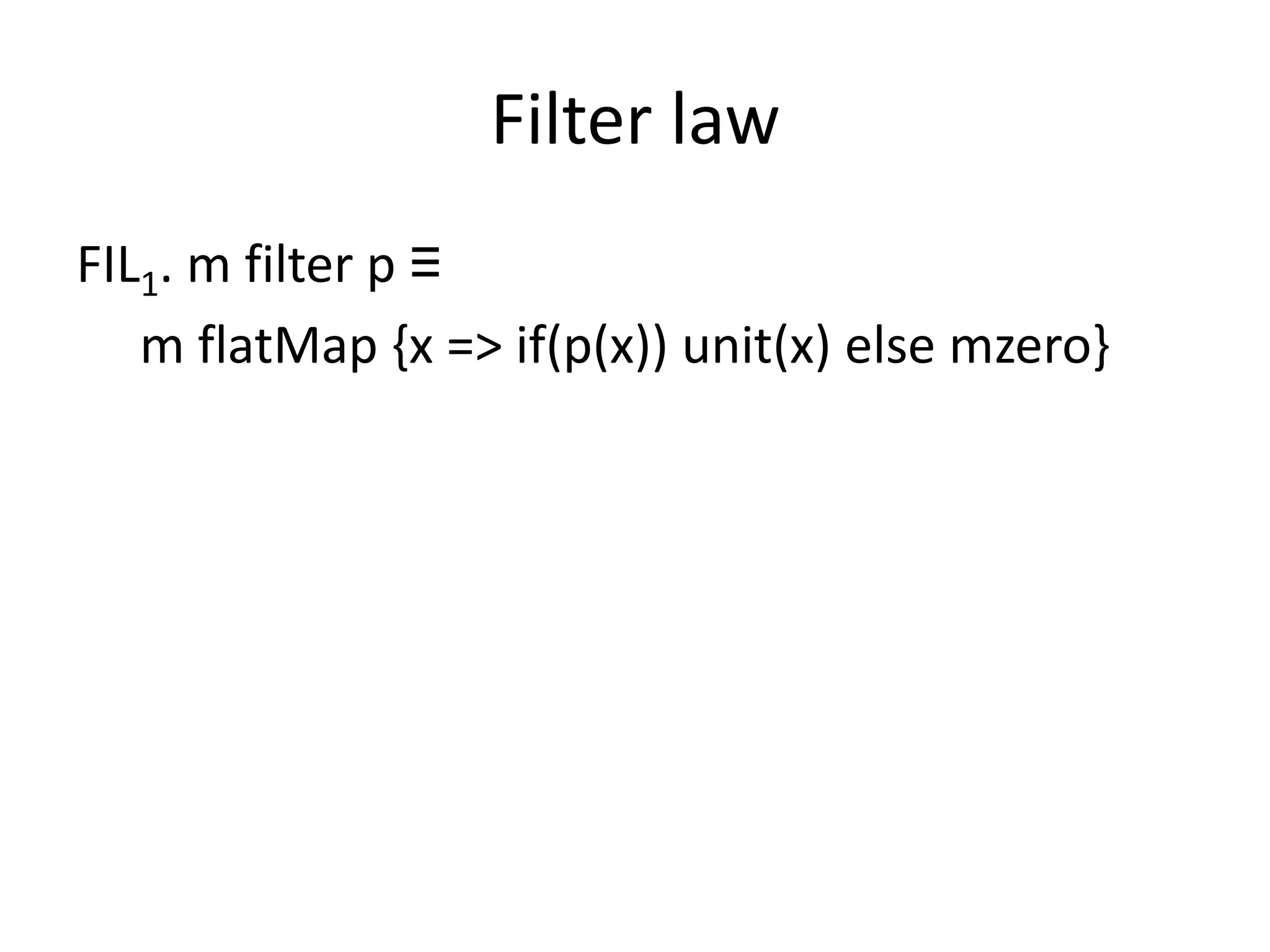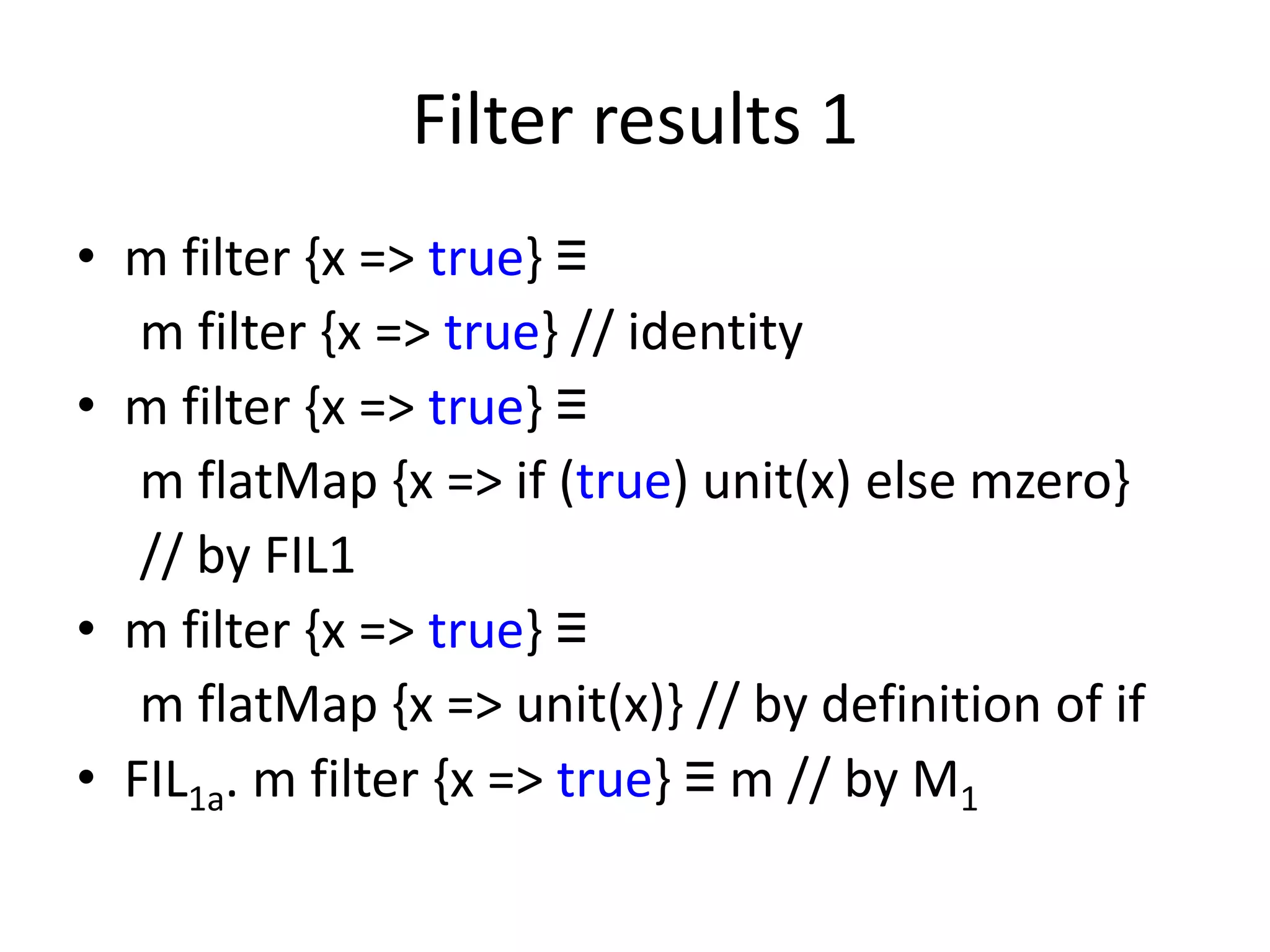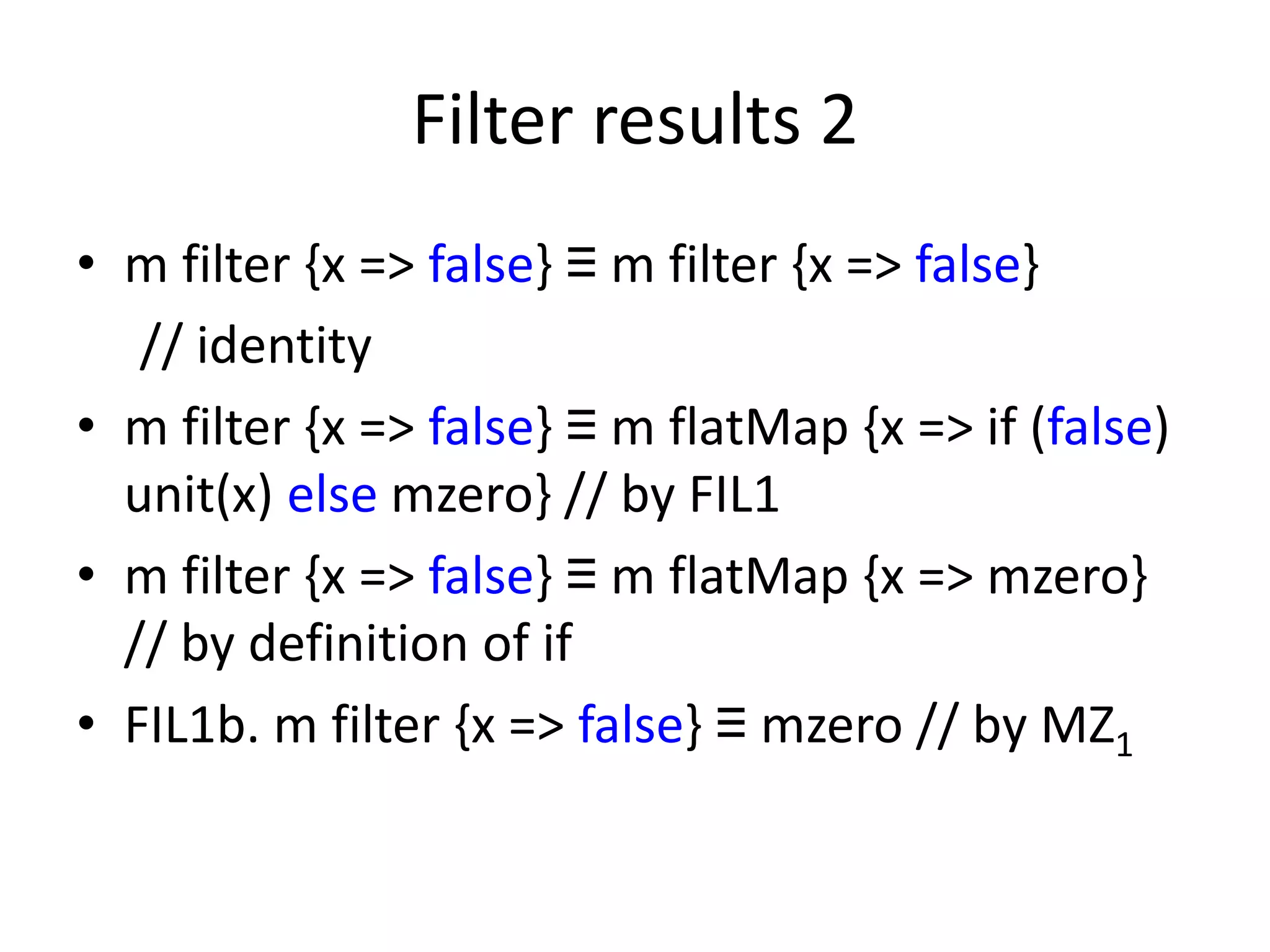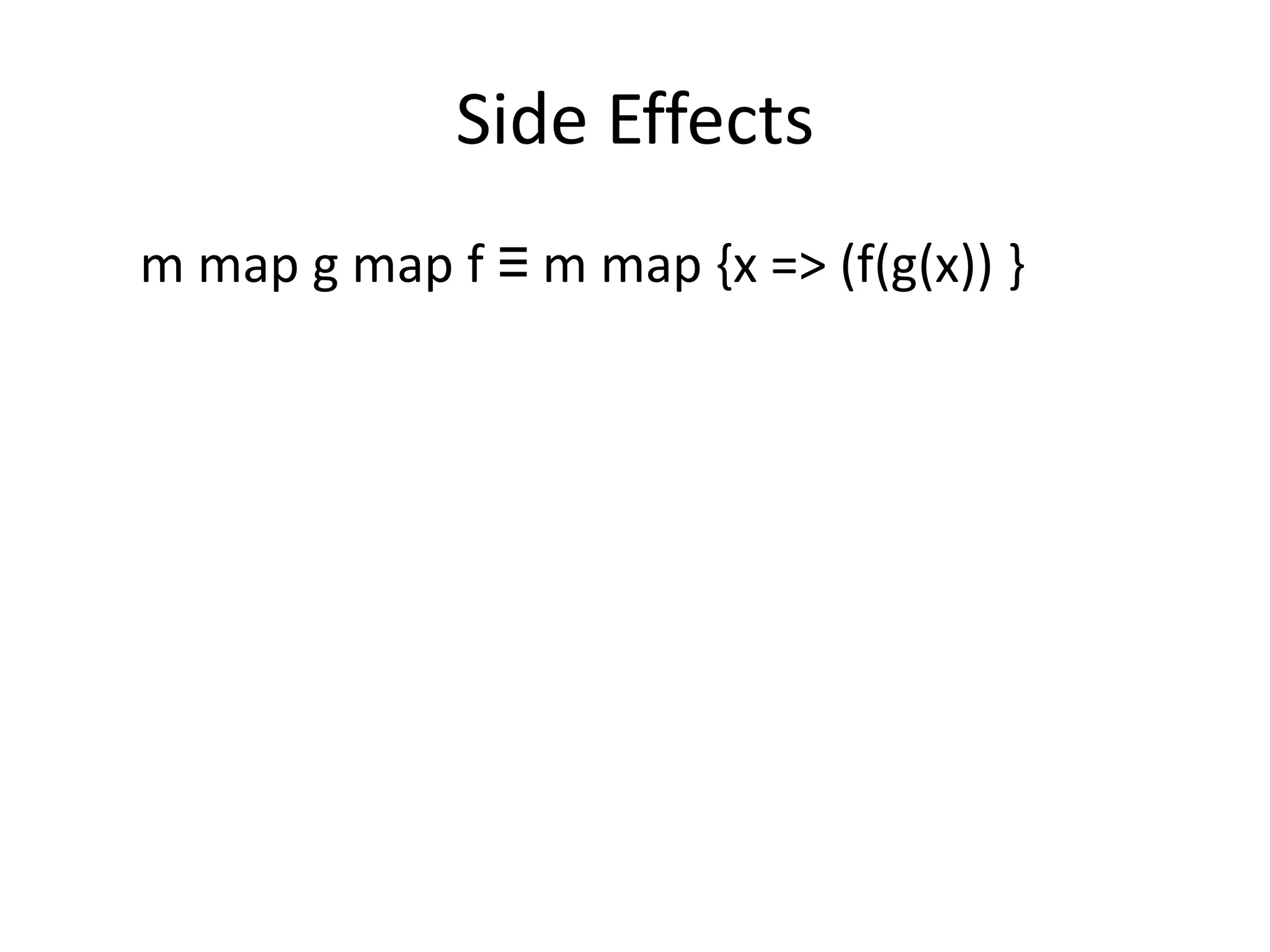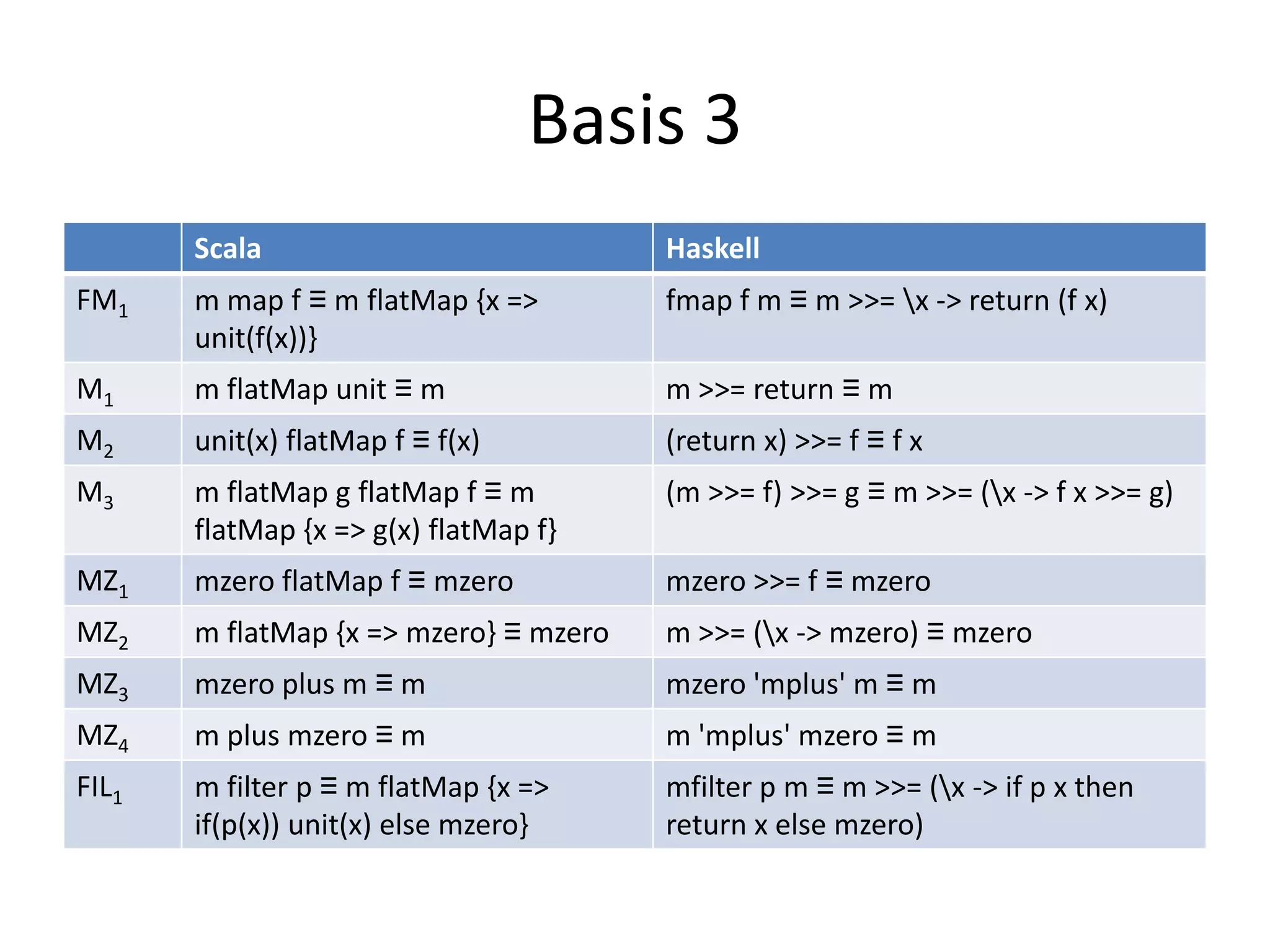The document discusses functional programming concepts like monads, functors, and for comprehensions in Scala. It provides definitions and laws for functors, monads, and monadic operations like map, flatMap, filter. It shows the equivalence between for comprehensions and flatMap/map implementations. It also discusses monadic zeros and filtering laws. Key concepts covered include the functor laws, monad laws, equivalence between map/flatMap and for comprehensions, and laws for operations like filter.
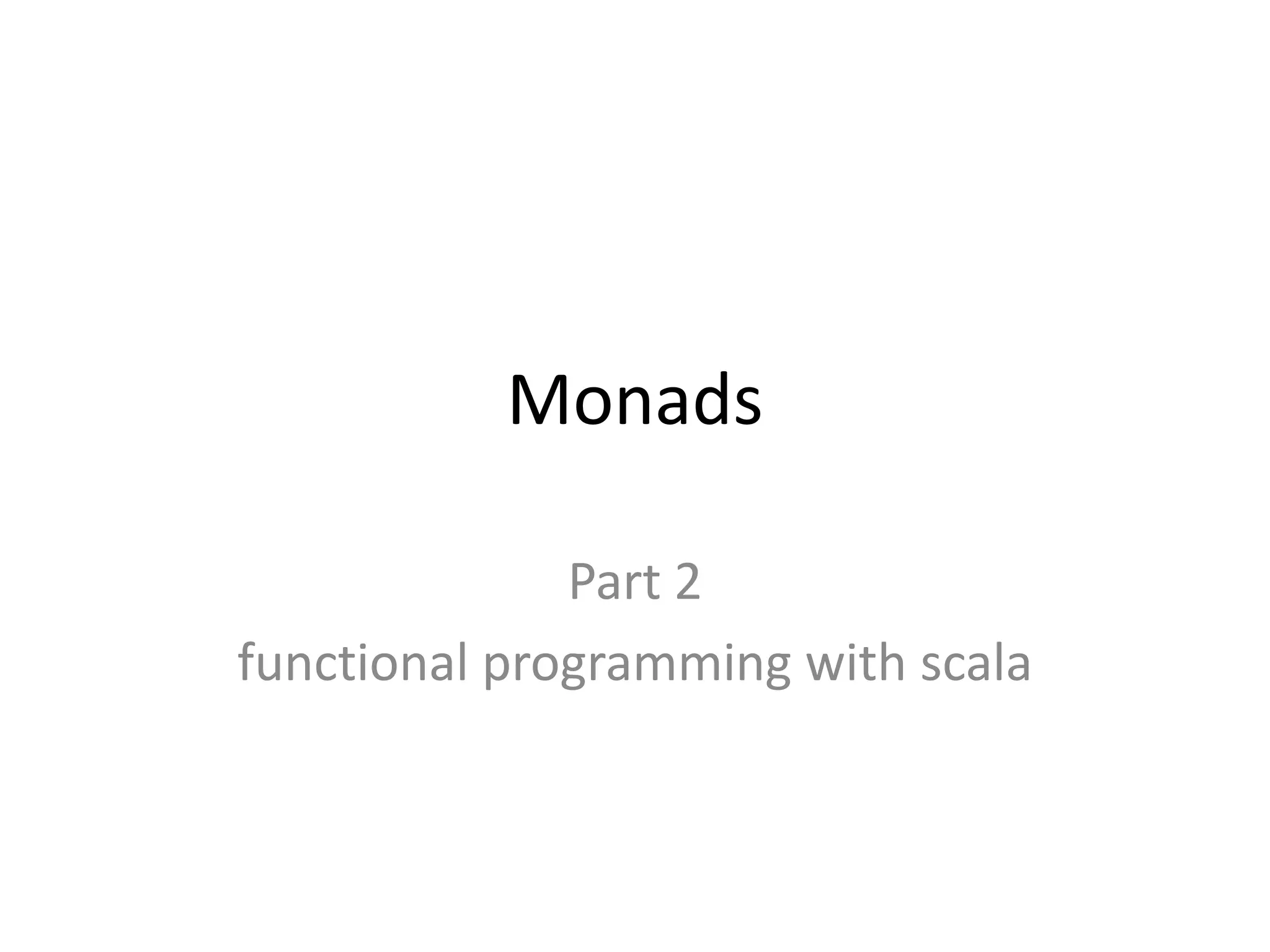
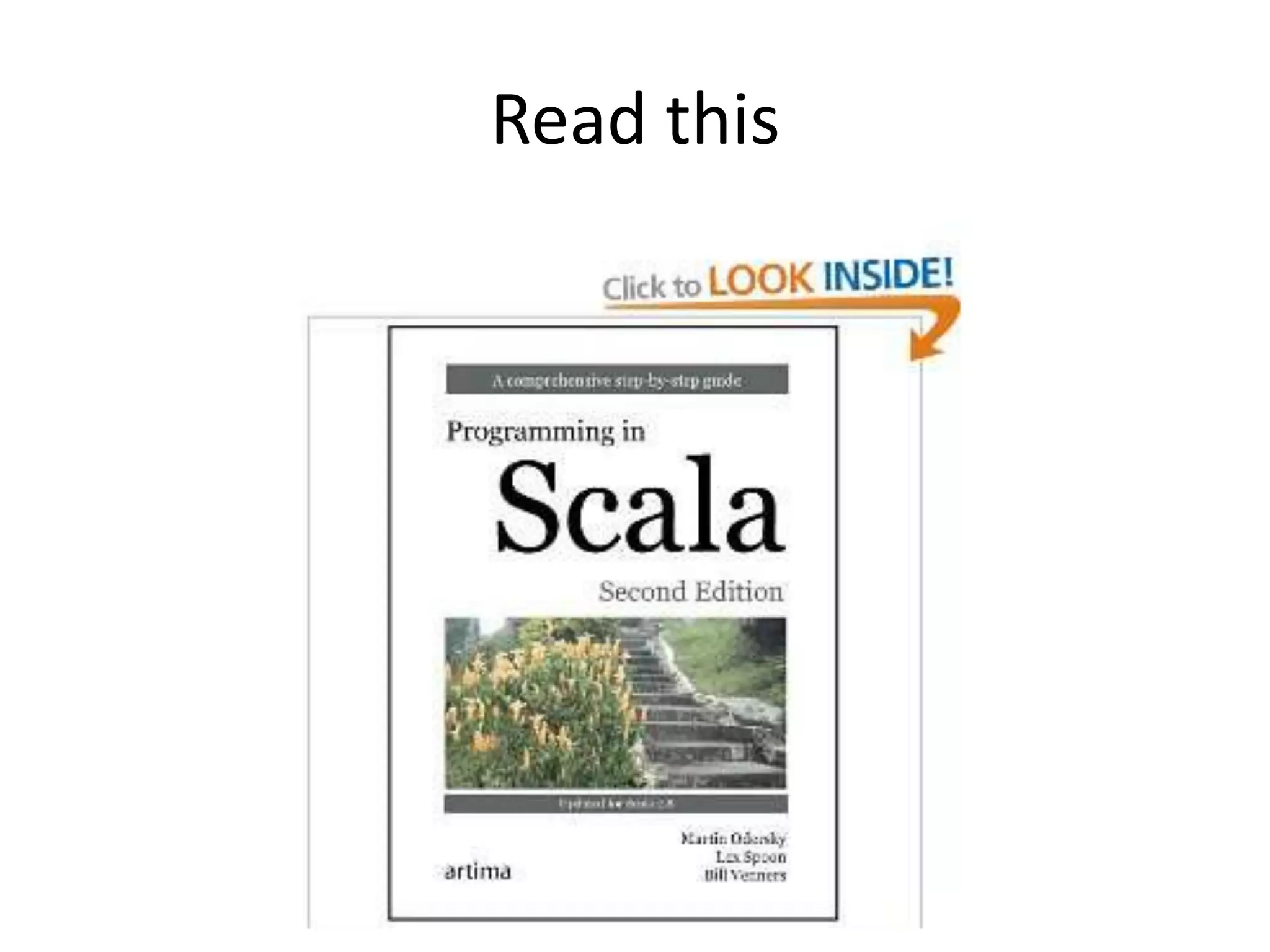
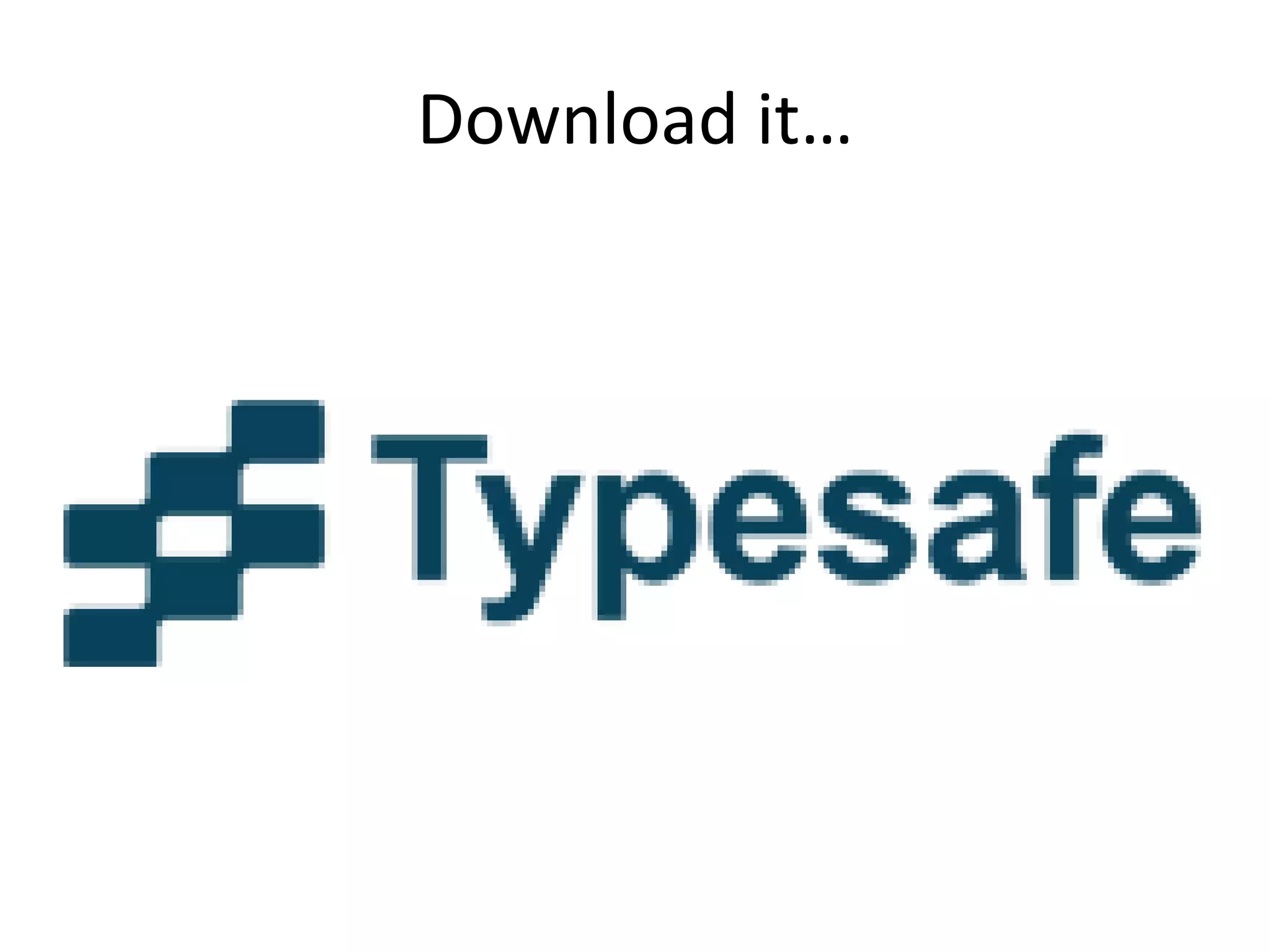
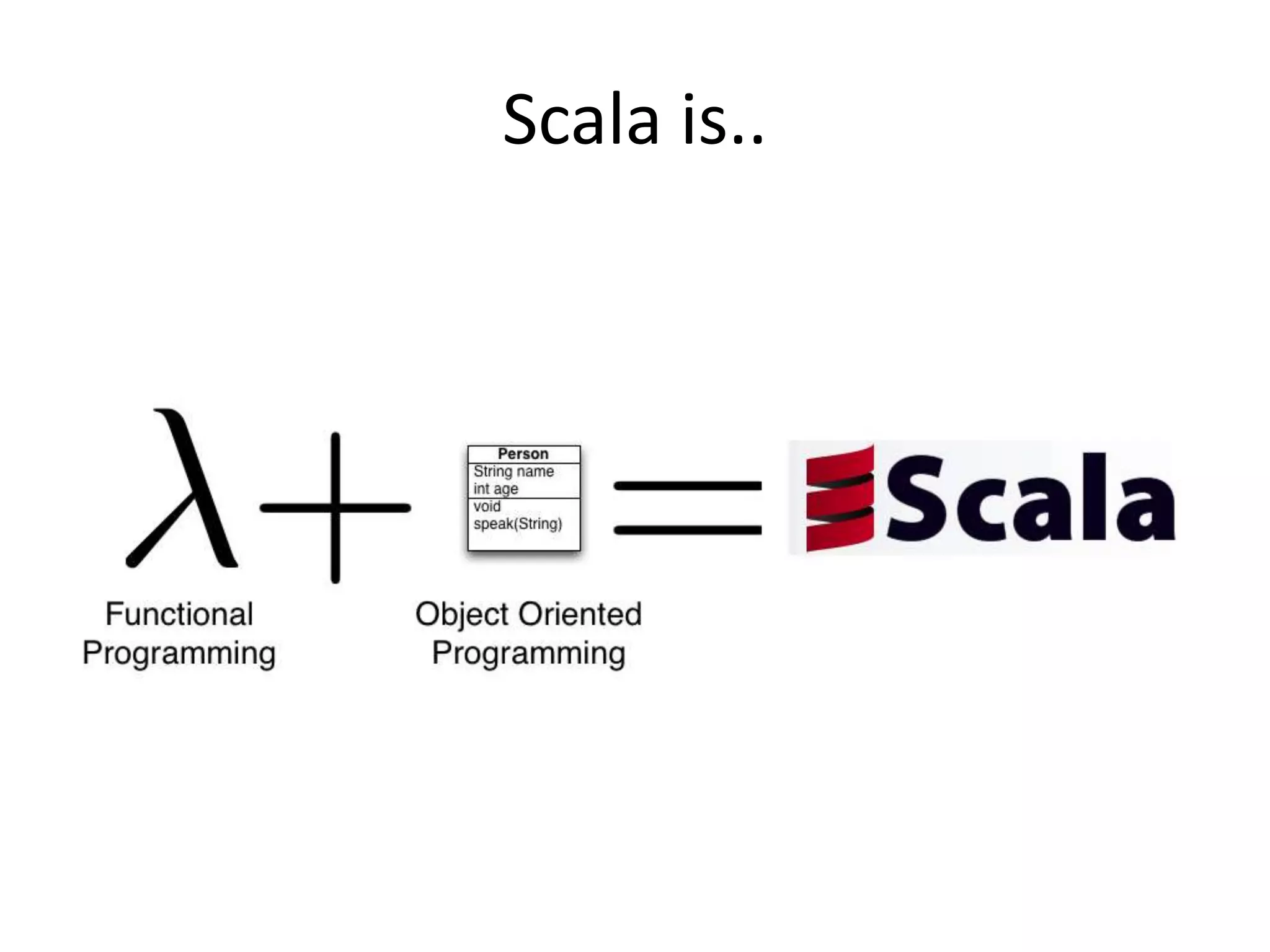
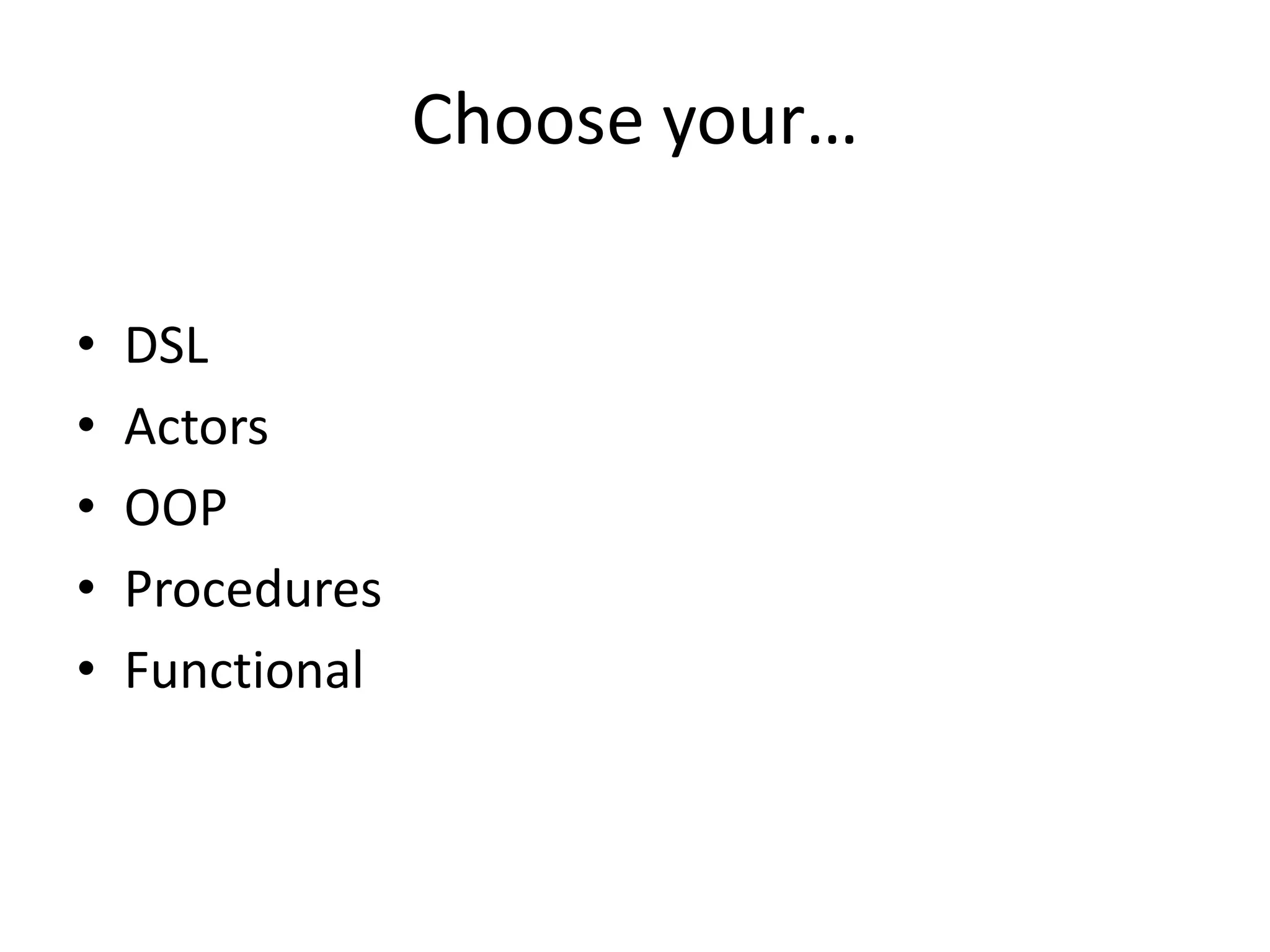
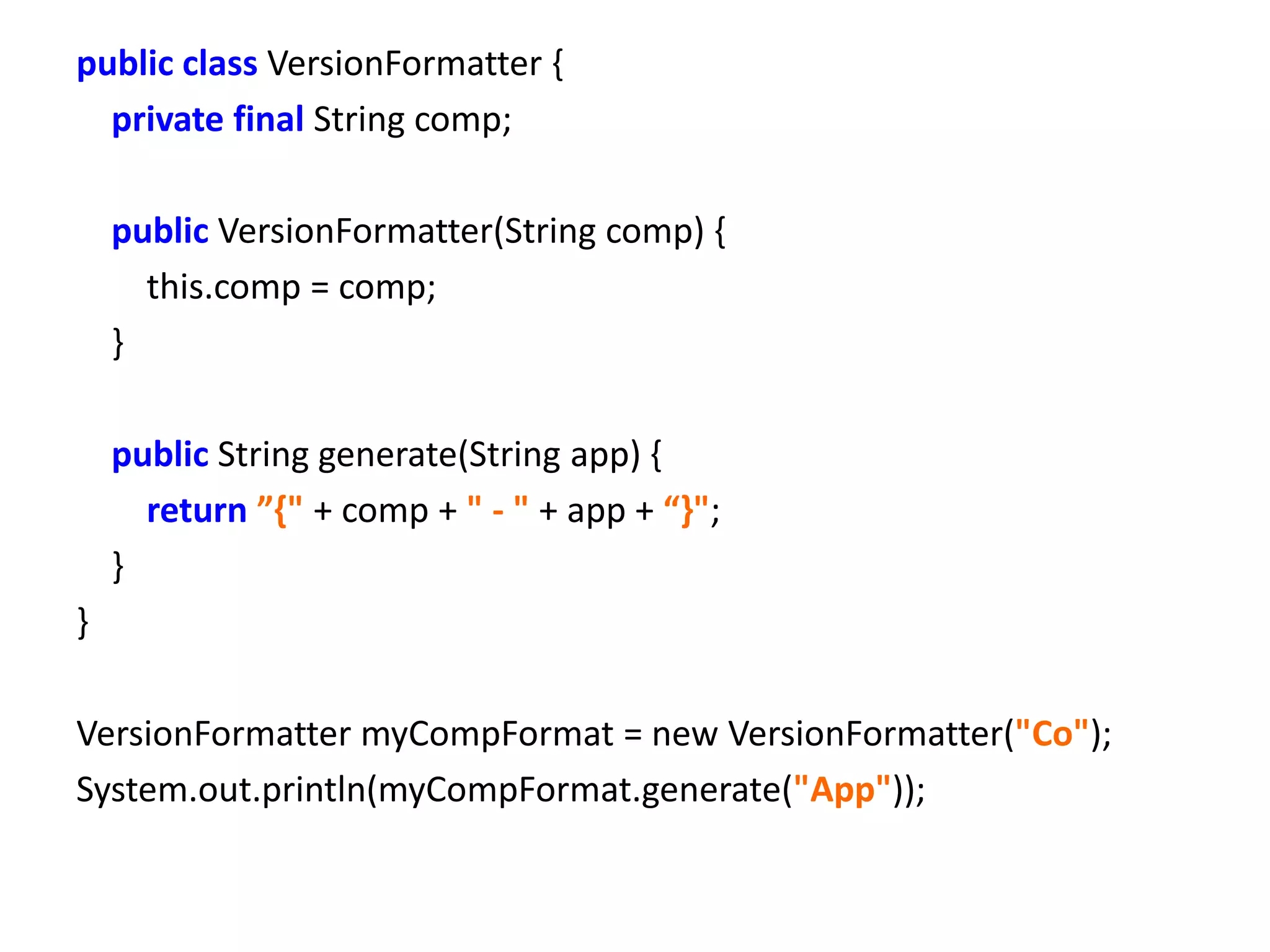
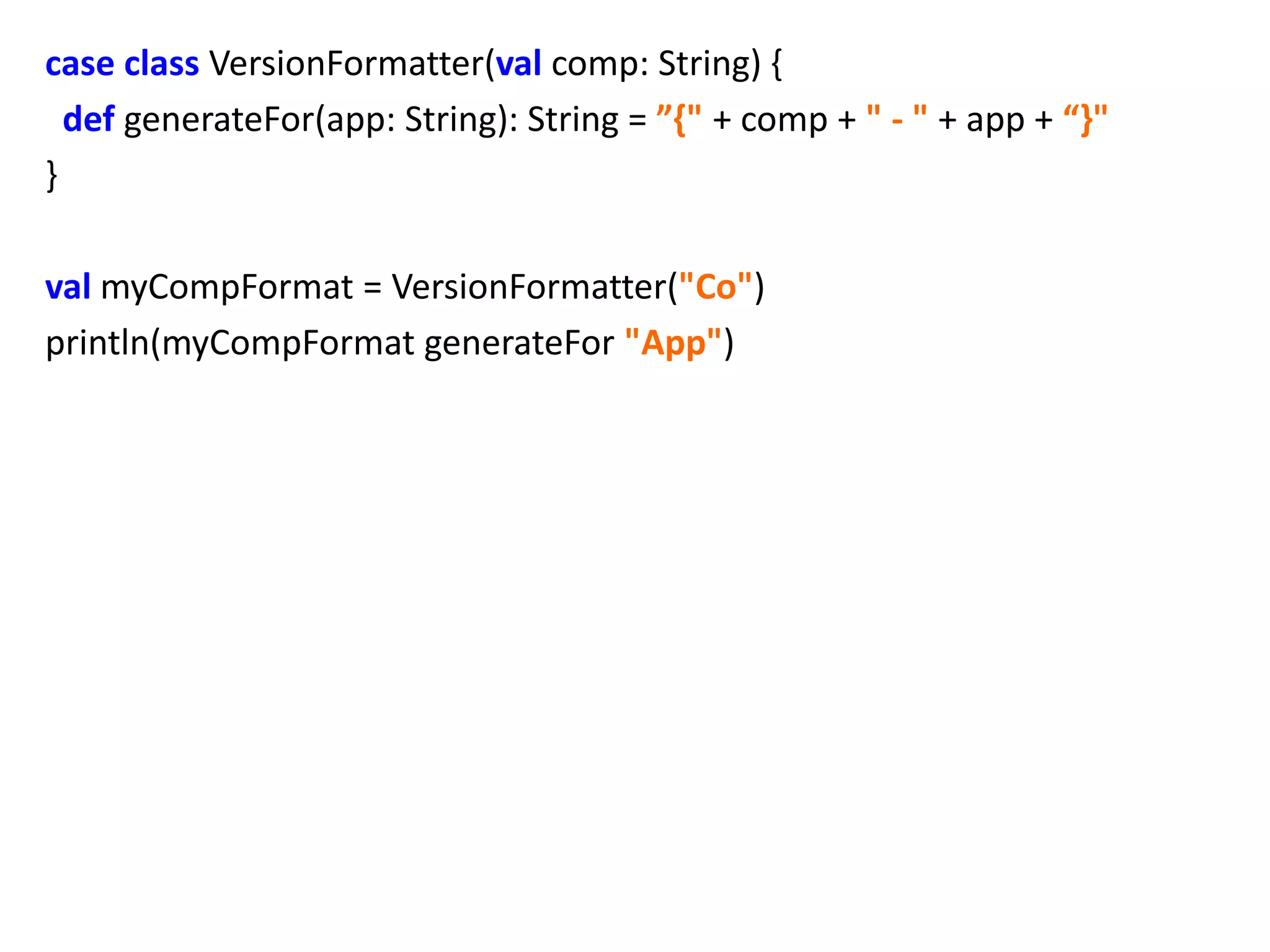
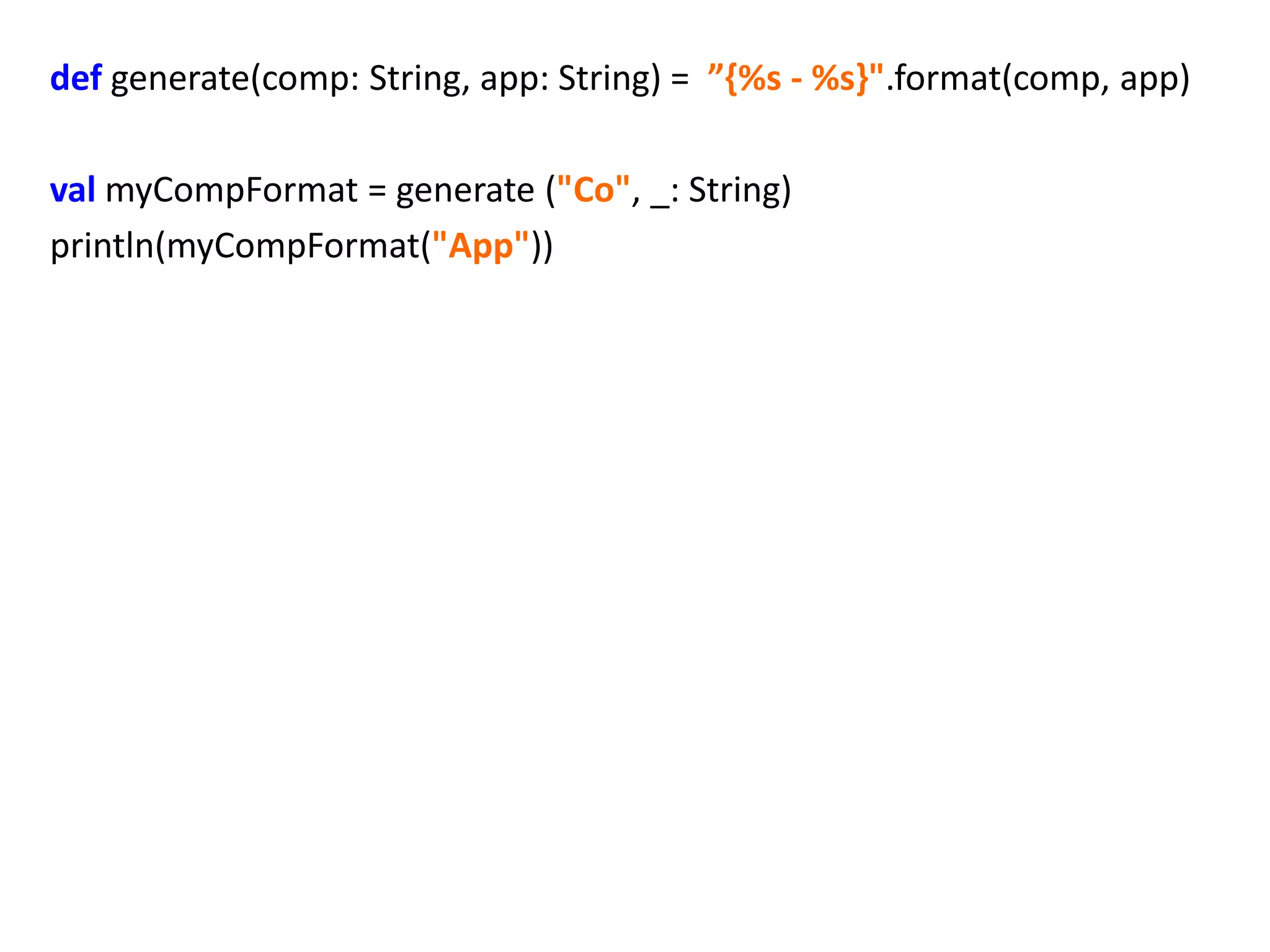
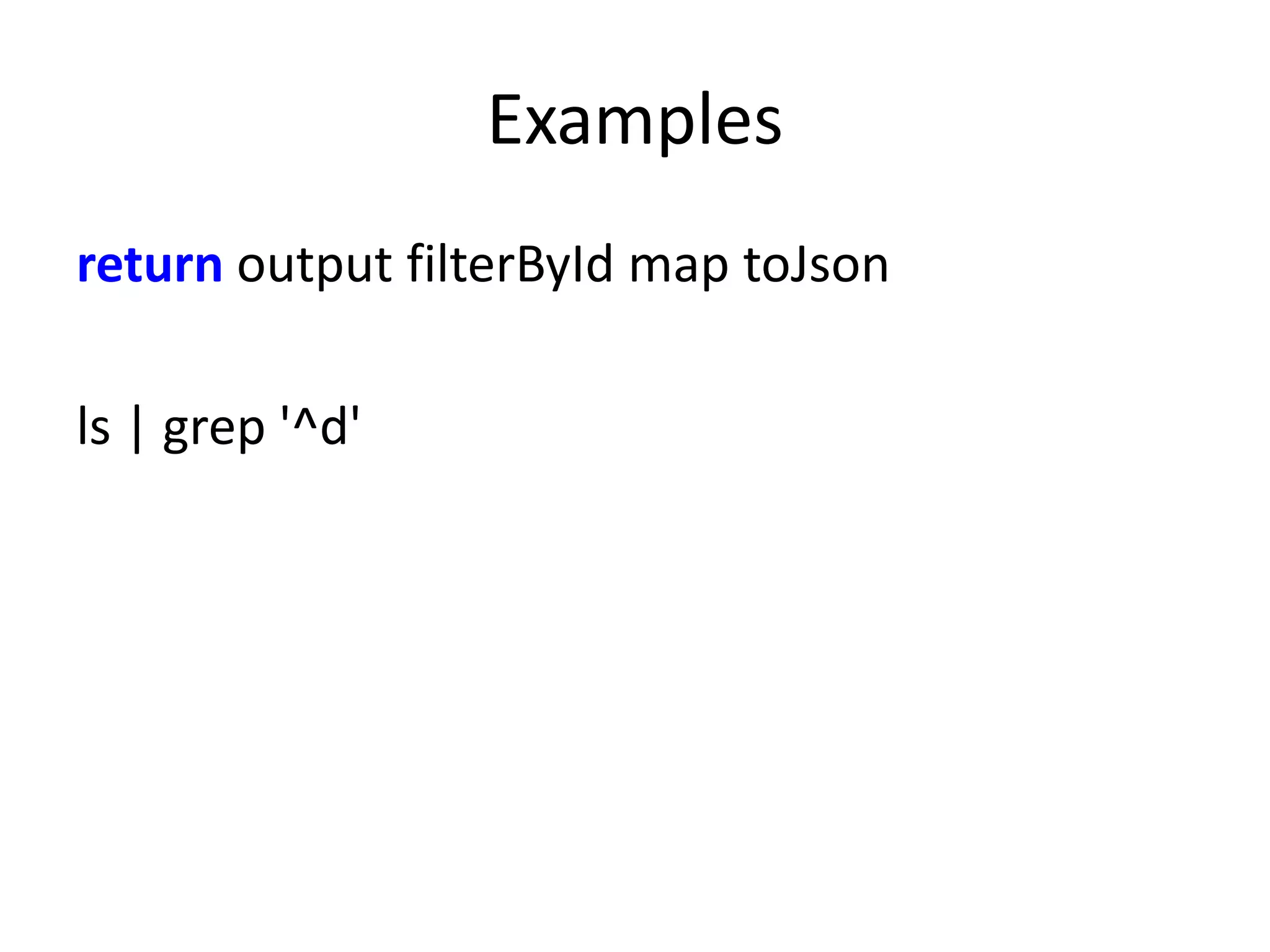
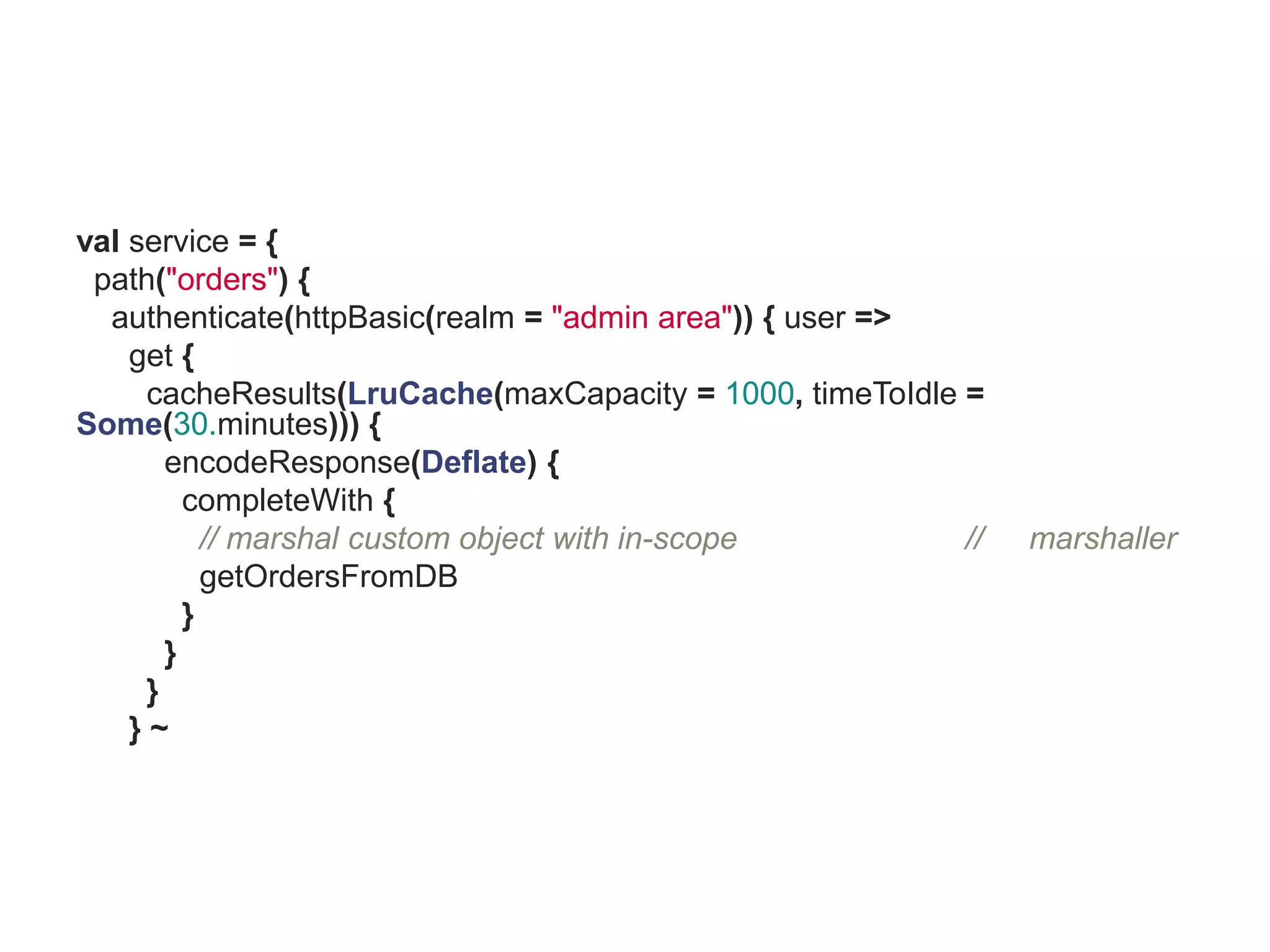
![var avg: Option[Float] =
from(grades)(g =>
where(g.subjectId === mathId)
compute(avg(
g.scoreInPercentage))
)](https://image.slidesharecdn.com/scala-monad2-120402070443-phpapp02/75/Introduction-to-Monads-in-Scala-2-11-2048.jpg)
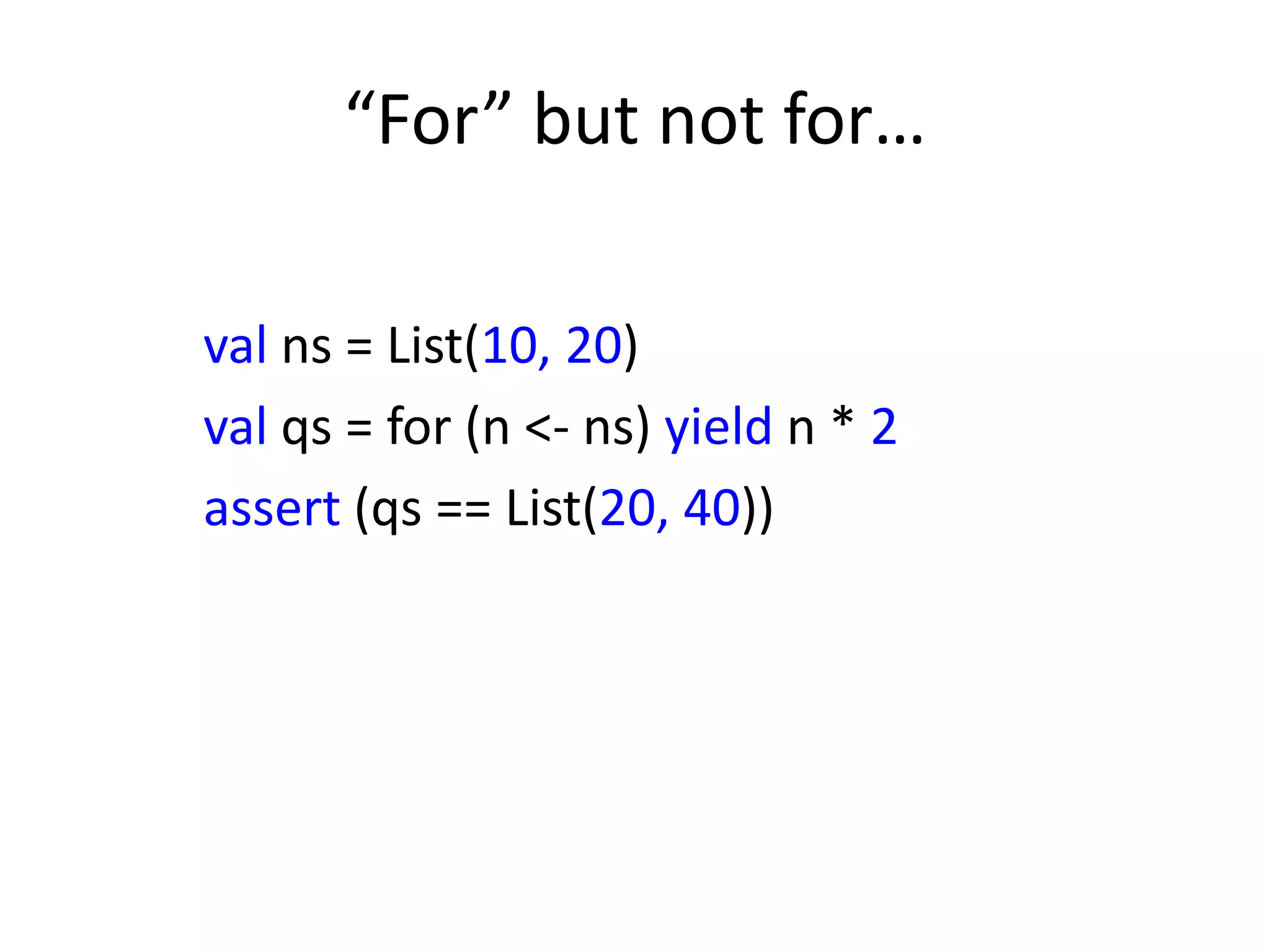
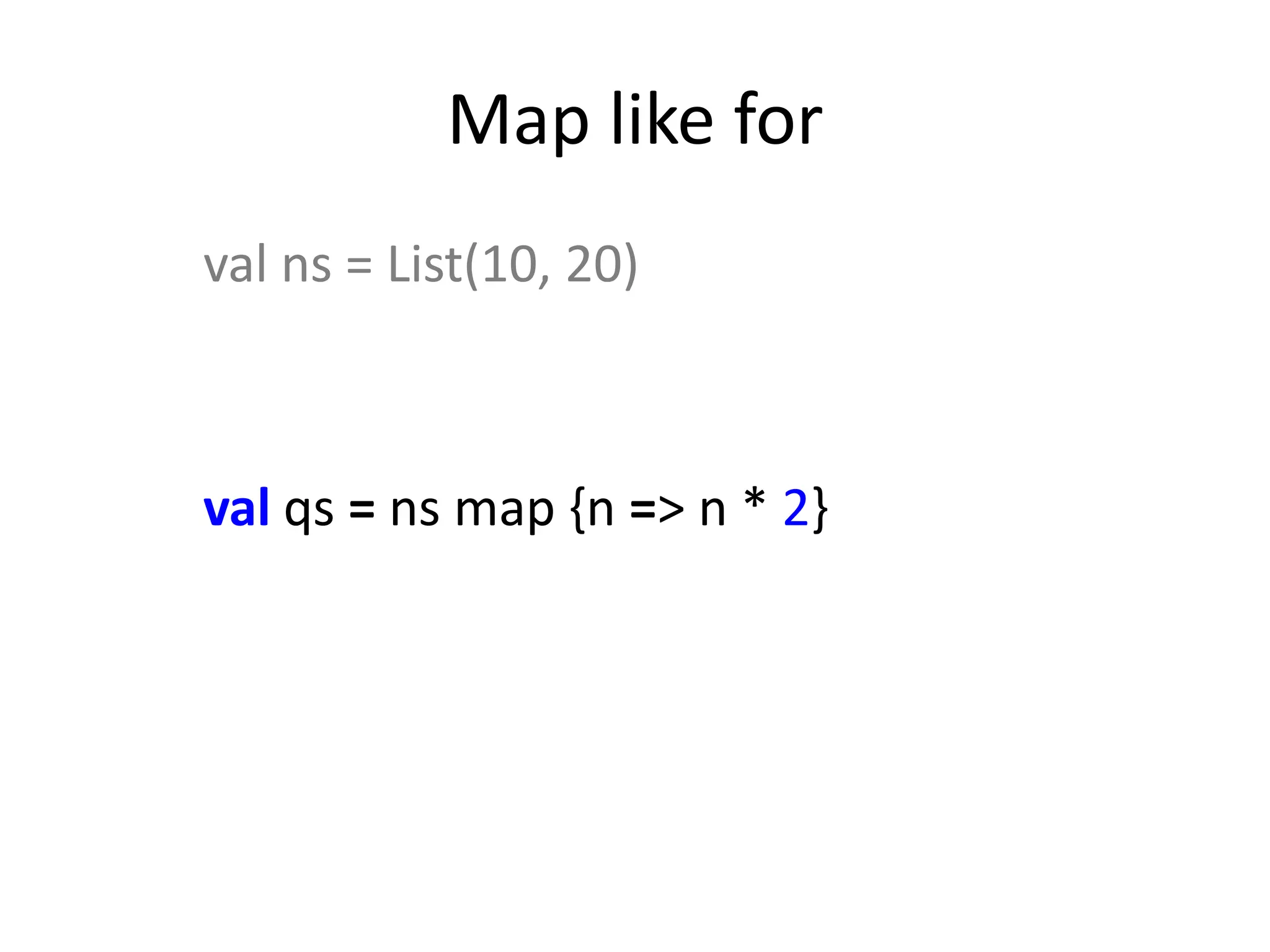
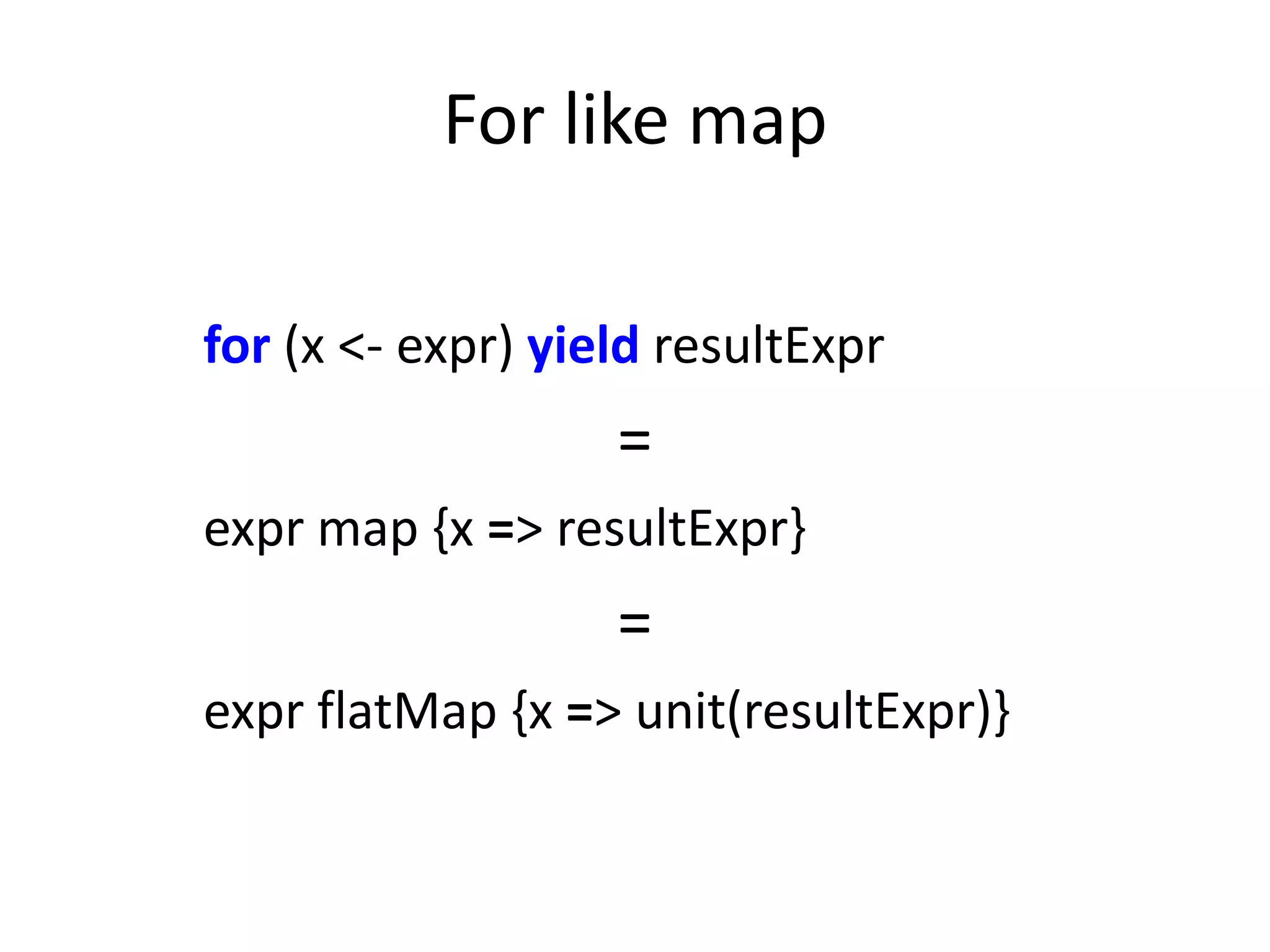
![for [each] n [in] ns [and each] o [in] os
yield n * o
val in1 = List(1, 2)
val in2 = List (3, 4)
val out = for (n <- in1; o <- in2) yield n + o
assert (out == List (1+3, 1+4, 2+3, 2+4))
=
val out2 = in1 flatMap {n =>
in2 map {o => n + o }}
assert(out == out2)](https://image.slidesharecdn.com/scala-monad2-120402070443-phpapp02/75/Introduction-to-Monads-in-Scala-2-15-2048.jpg)
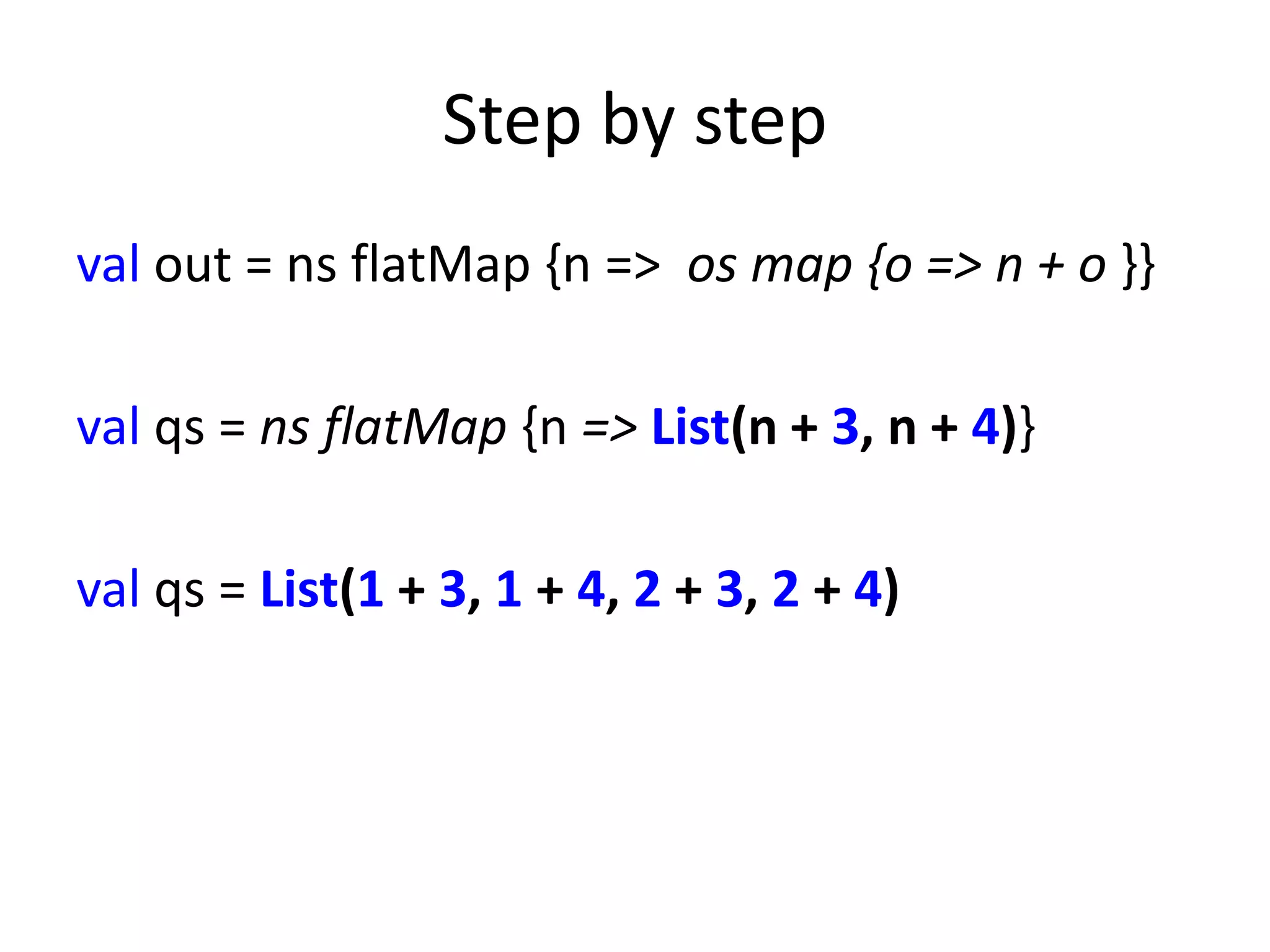
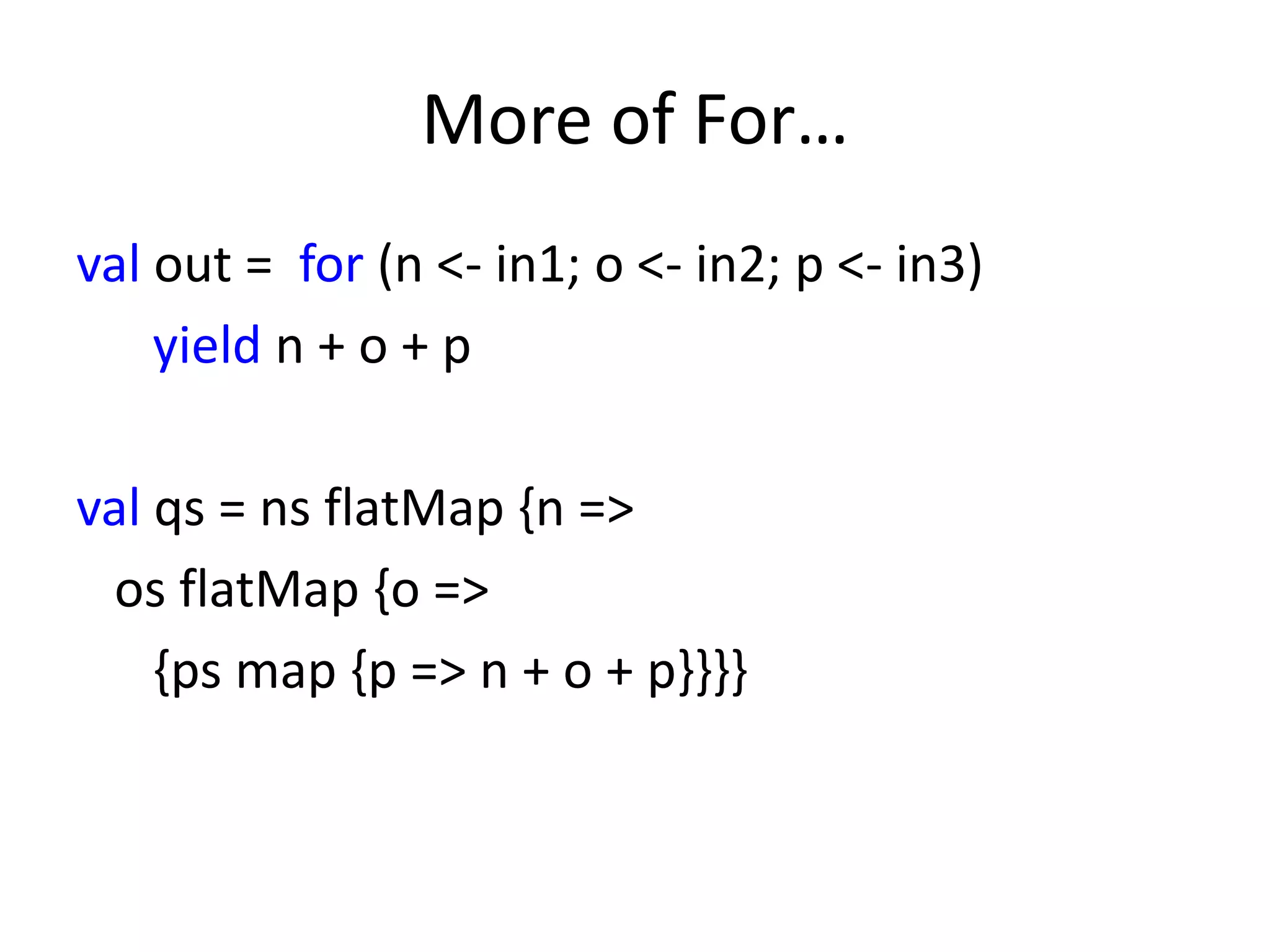
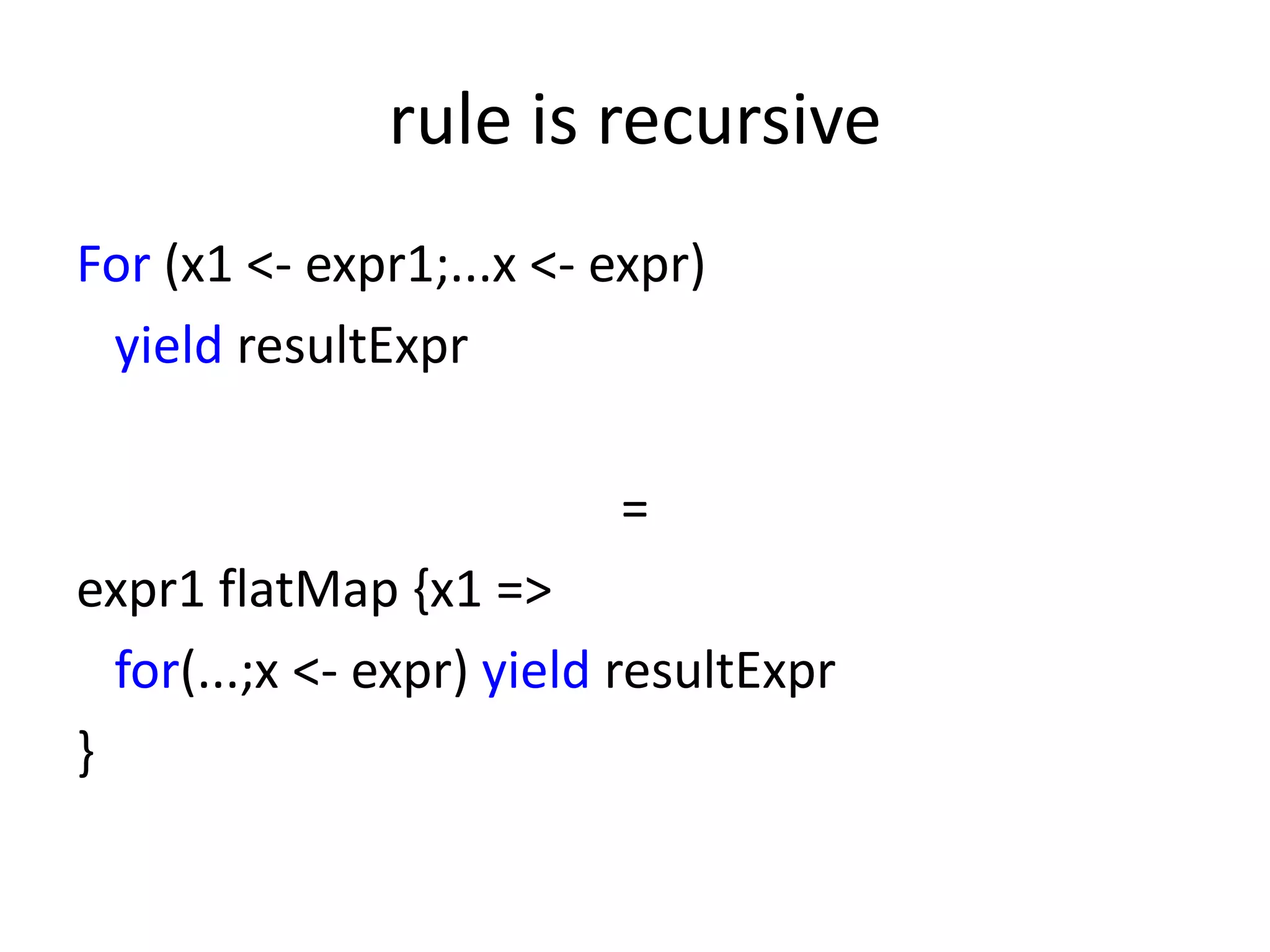
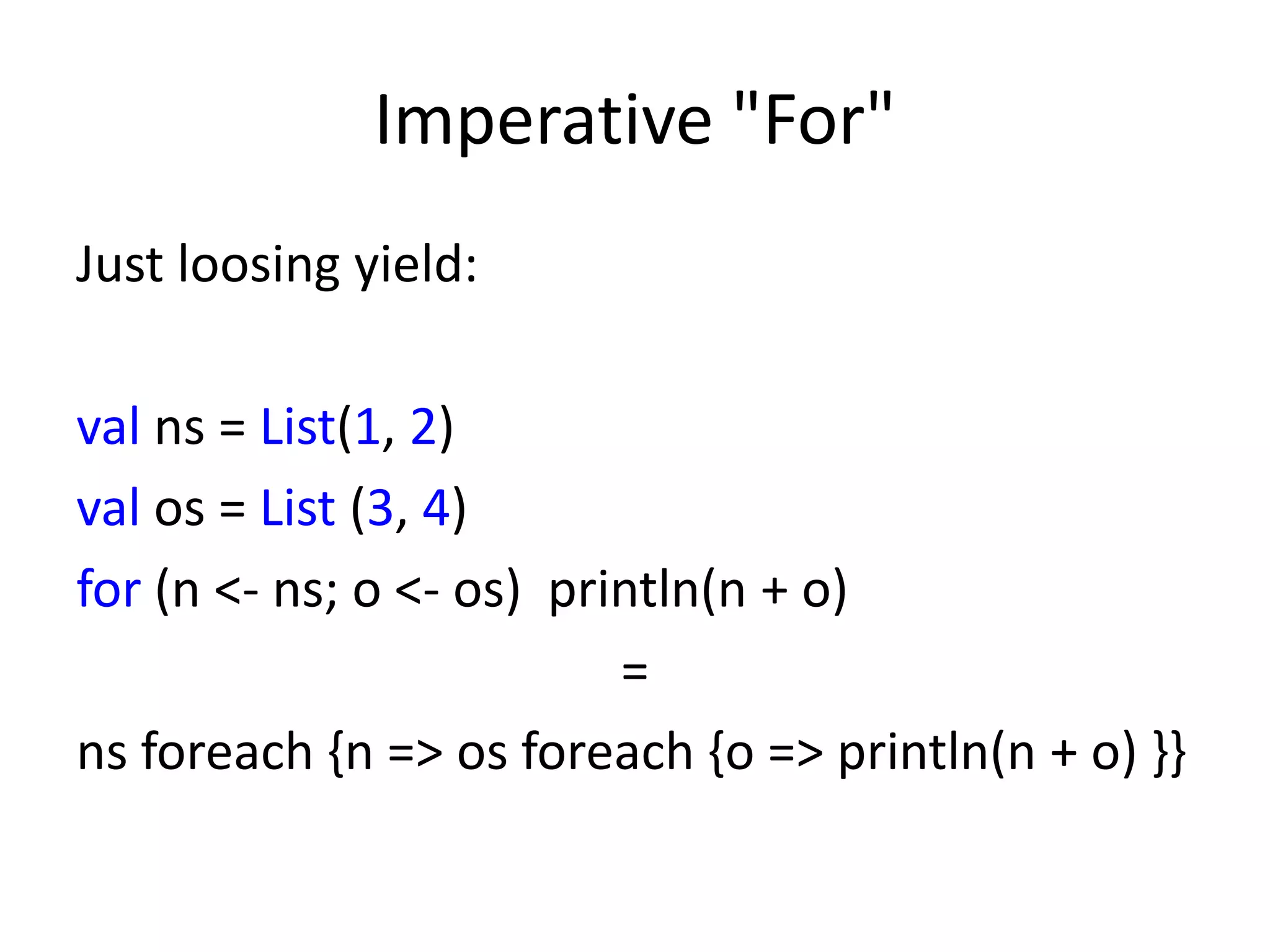
![Foreach is imperative form of "for"
class M[A] {
def map[B](f: A=> B) : M[B] = ...
def flatMap[B](f: A => M[B]) : M[B] = ...
def foreach[B](f: A=> B) : Unit = {
map(f)
return ()
}
}](https://image.slidesharecdn.com/scala-monad2-120402070443-phpapp02/75/Introduction-to-Monads-in-Scala-2-20-2048.jpg)
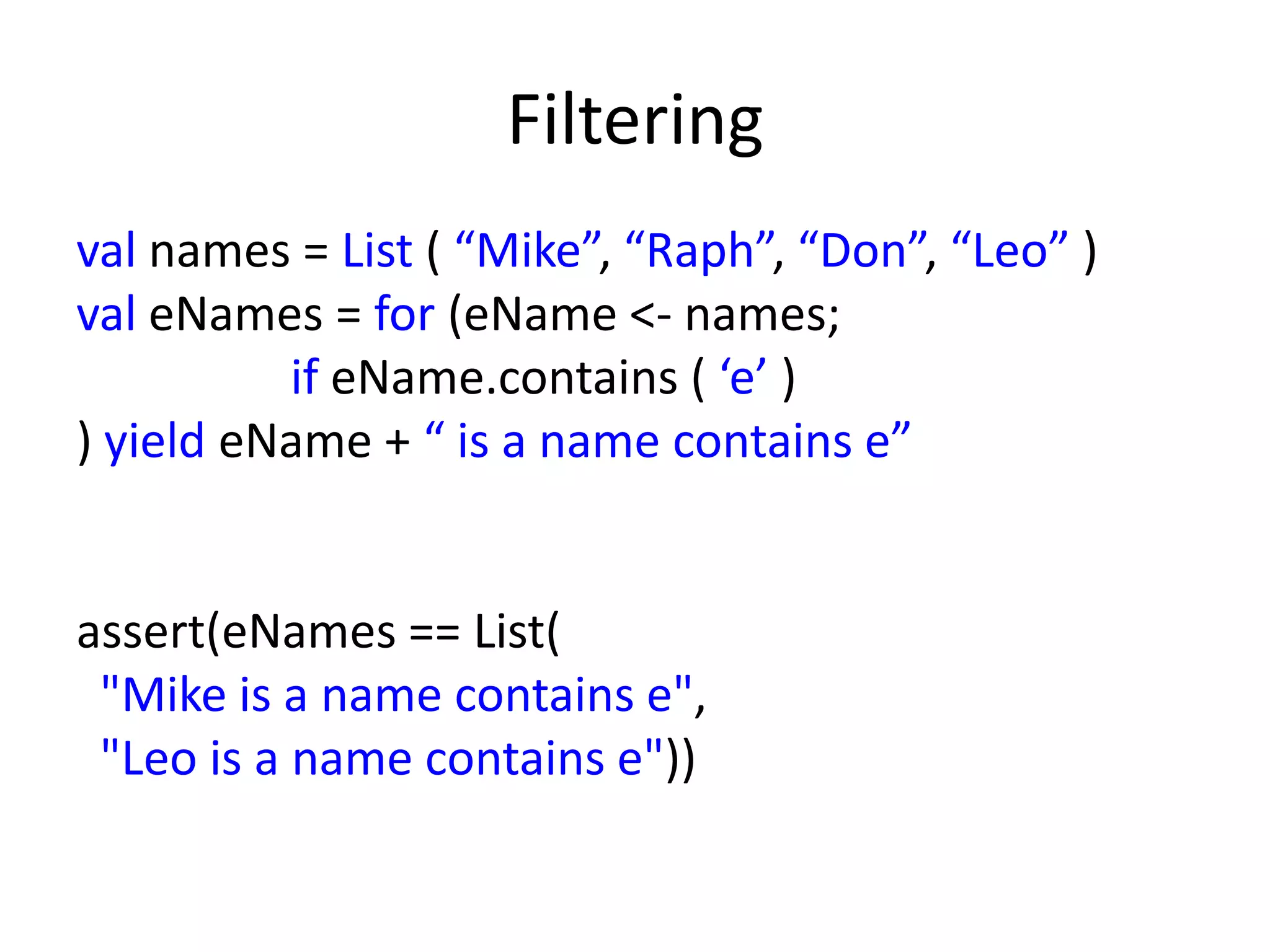
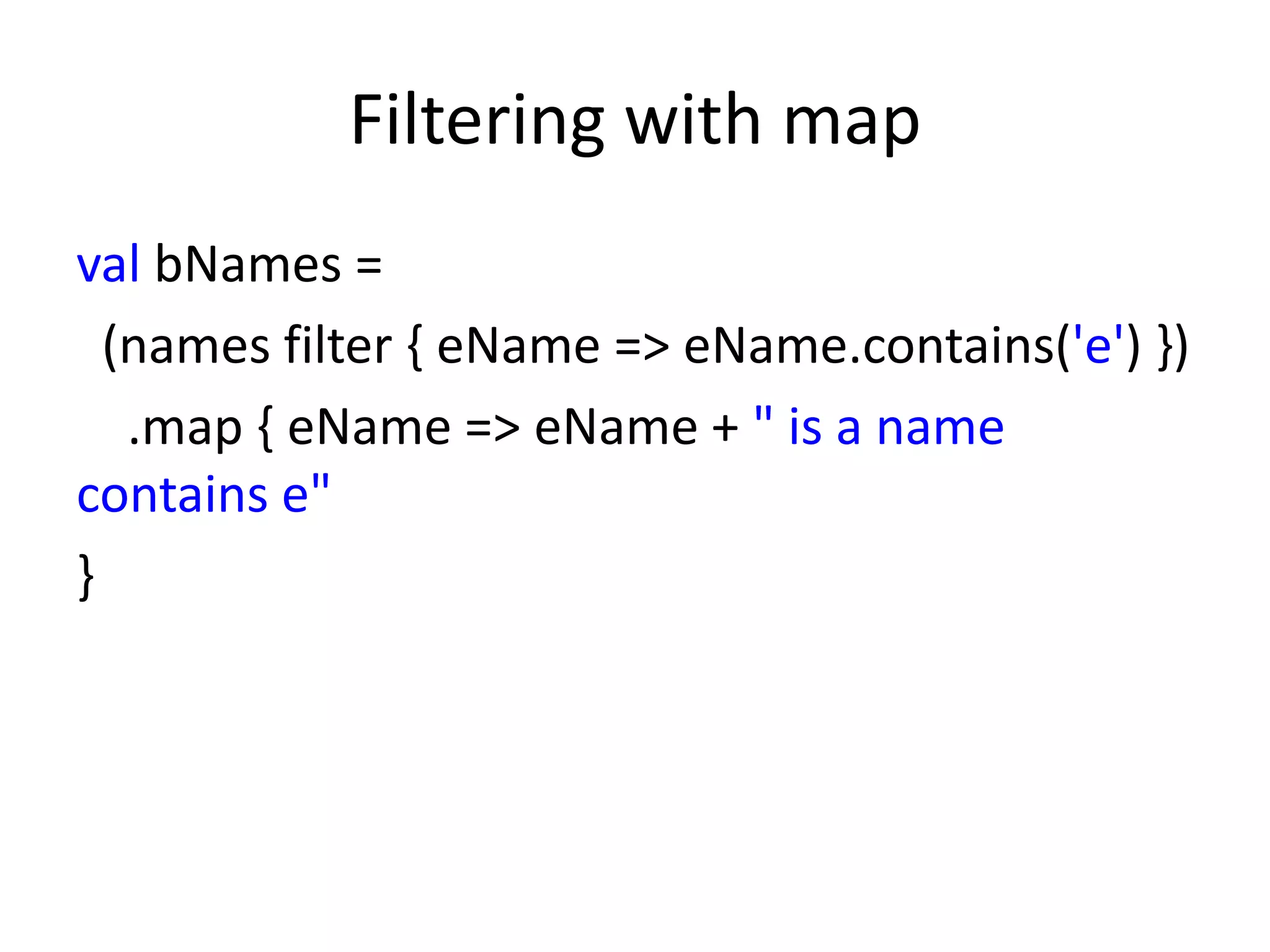
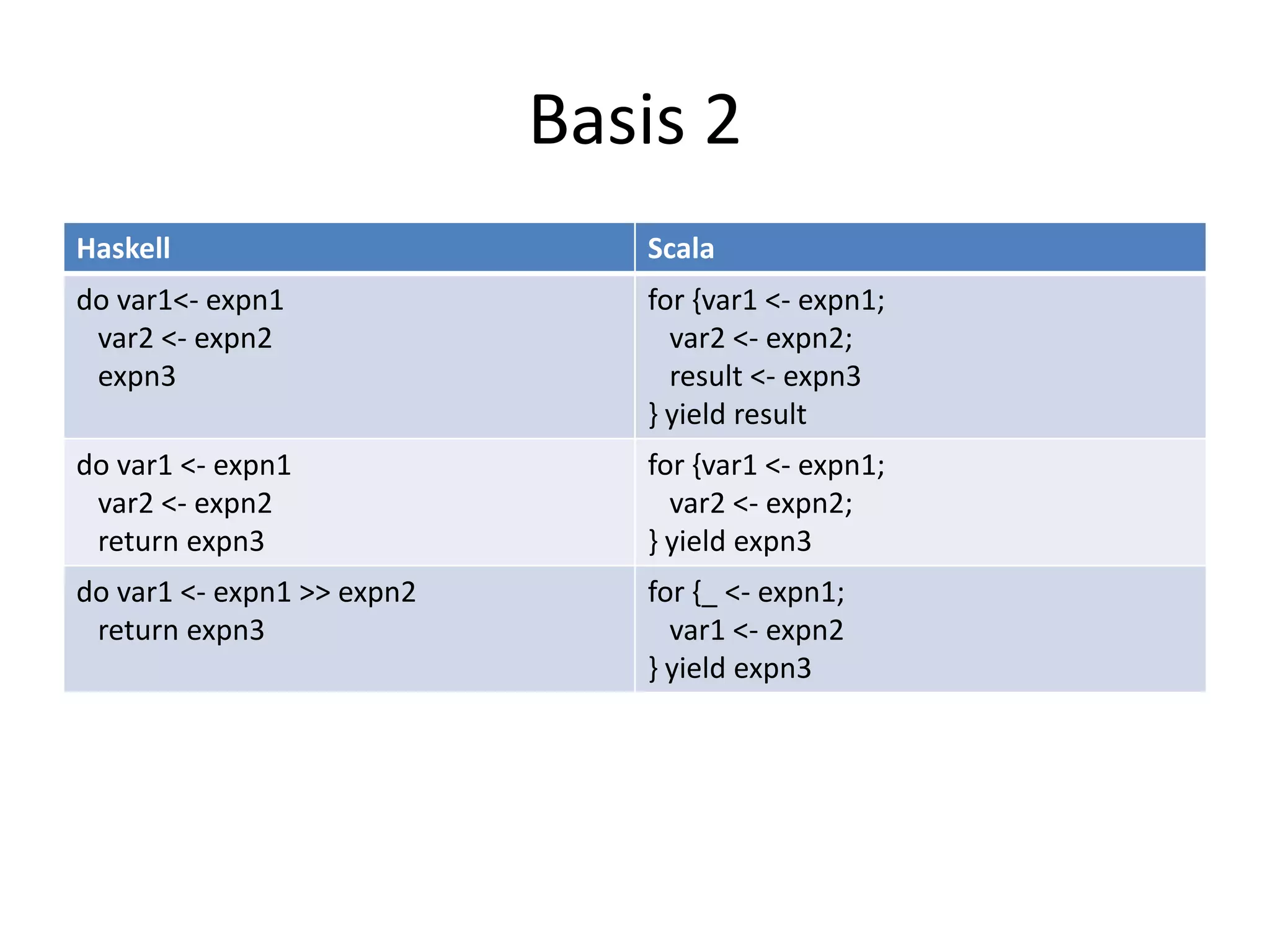
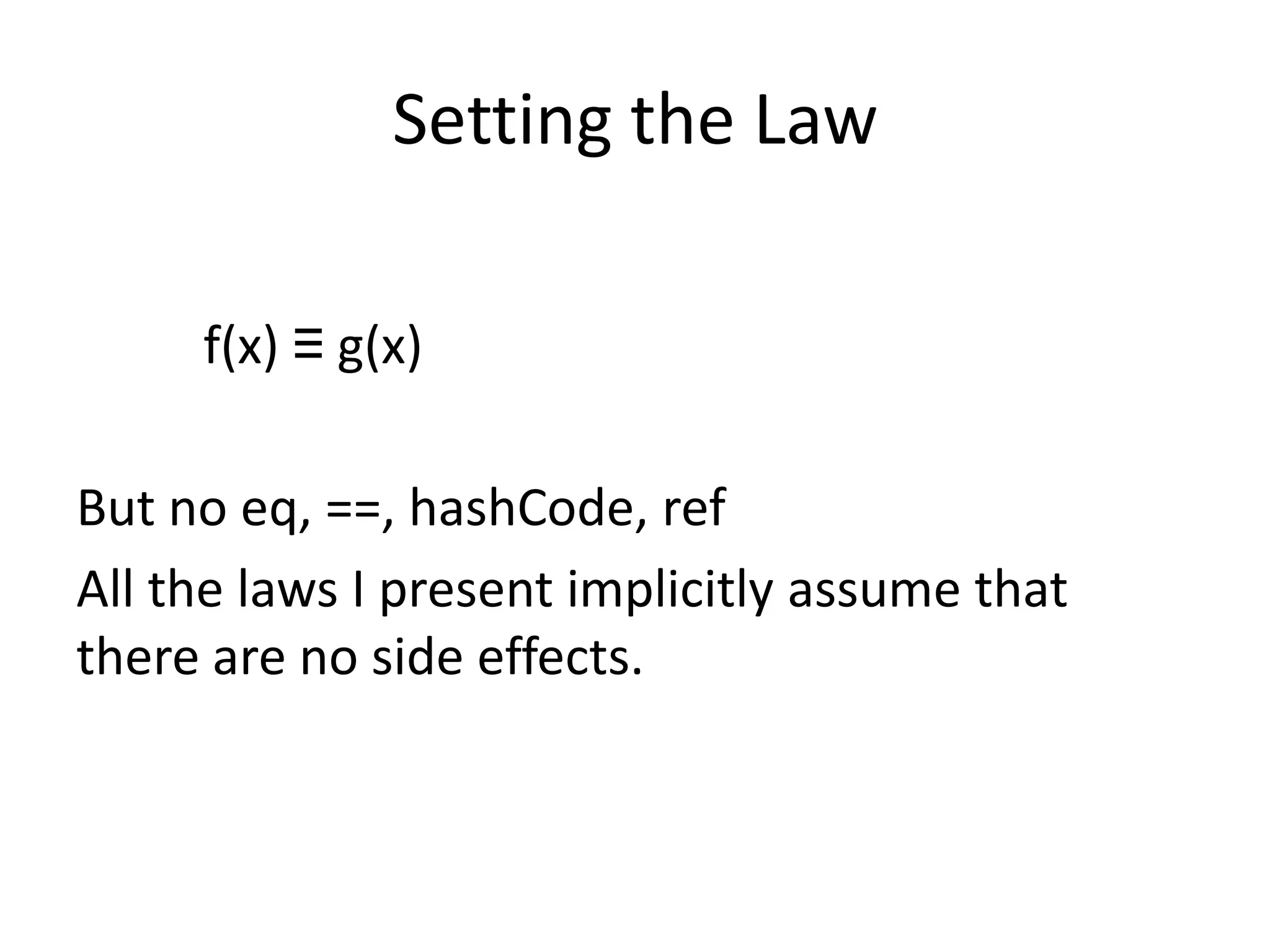
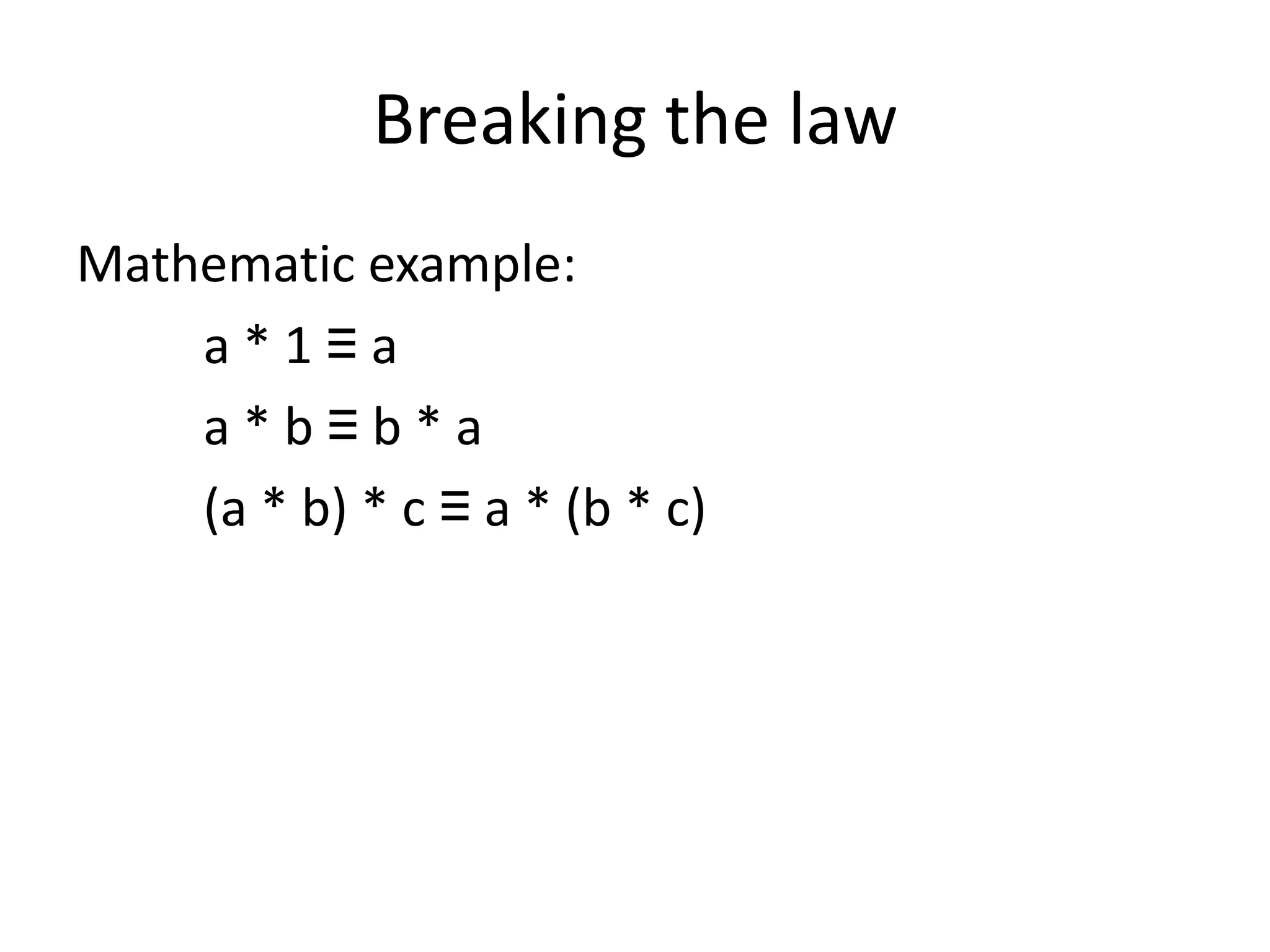
![WTF - What The Functor?
In Scala a functor is a class with a map method
and a few simple properties.
class M[A] {
def map[B](f: A => B):M[B] = ...
}](https://image.slidesharecdn.com/scala-monad2-120402070443-phpapp02/75/Introduction-to-Monads-in-Scala-2-26-2048.jpg)
 = x
identity(x) ≡ x
So here's our first functor law: for any functor m
– F1. m map identity ≡ m // or equivalently *
– F1b. m map {x => identity(x)} ≡ m // or
equivalently
– F1c. m map {x => x} ≡ m](https://image.slidesharecdn.com/scala-monad2-120402070443-phpapp02/75/Introduction-to-Monads-in-Scala-2-27-2048.jpg)
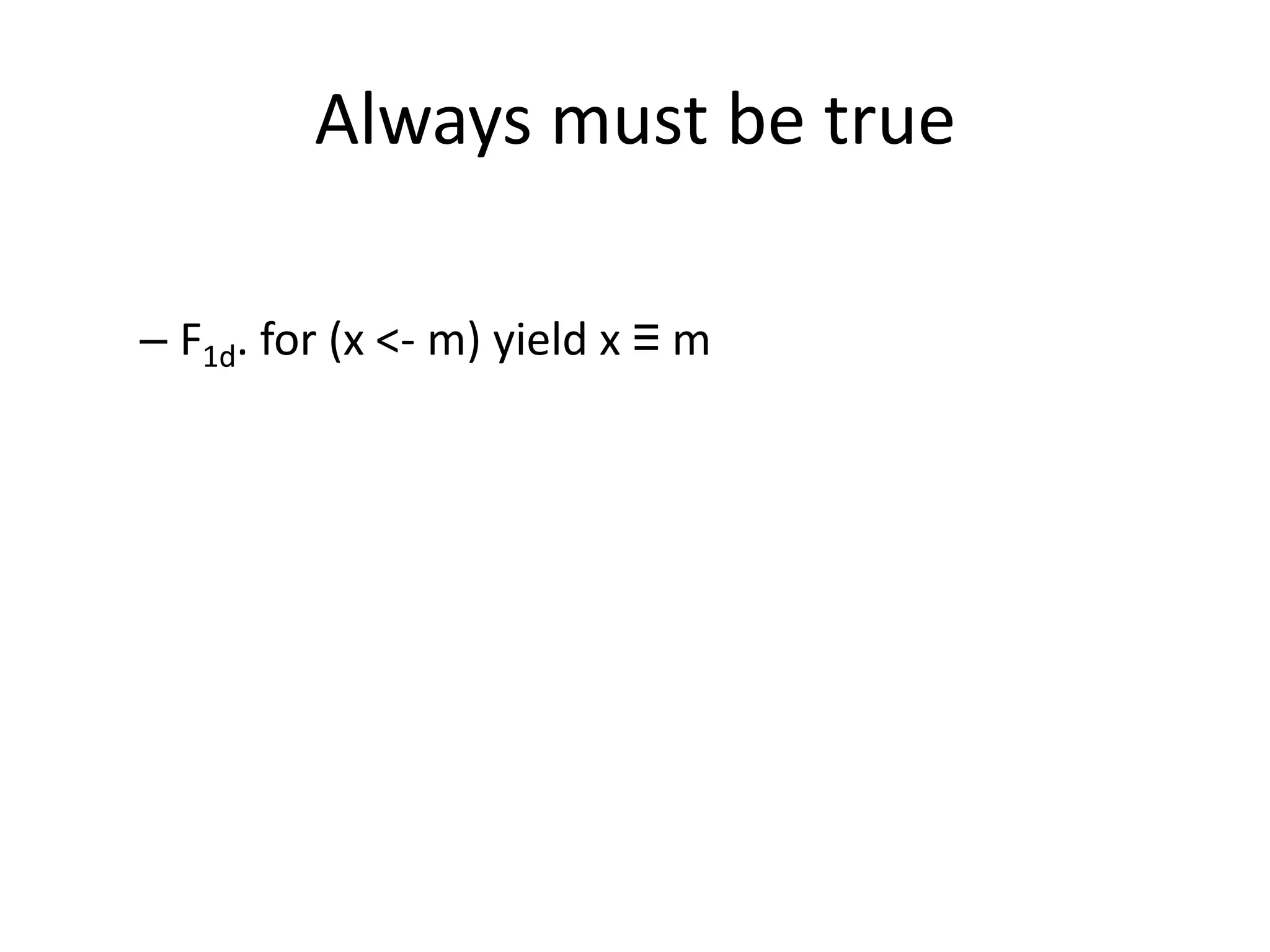
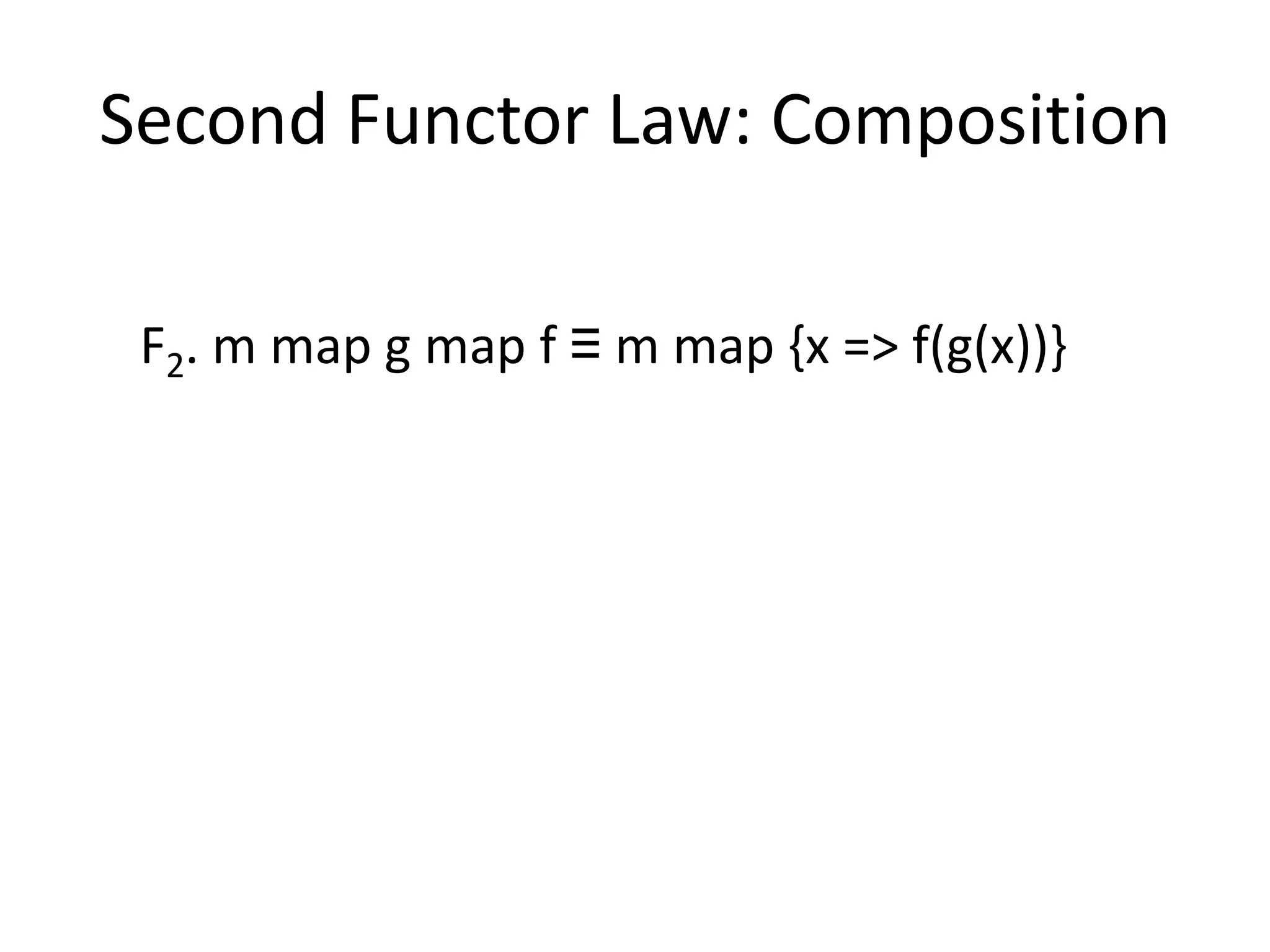
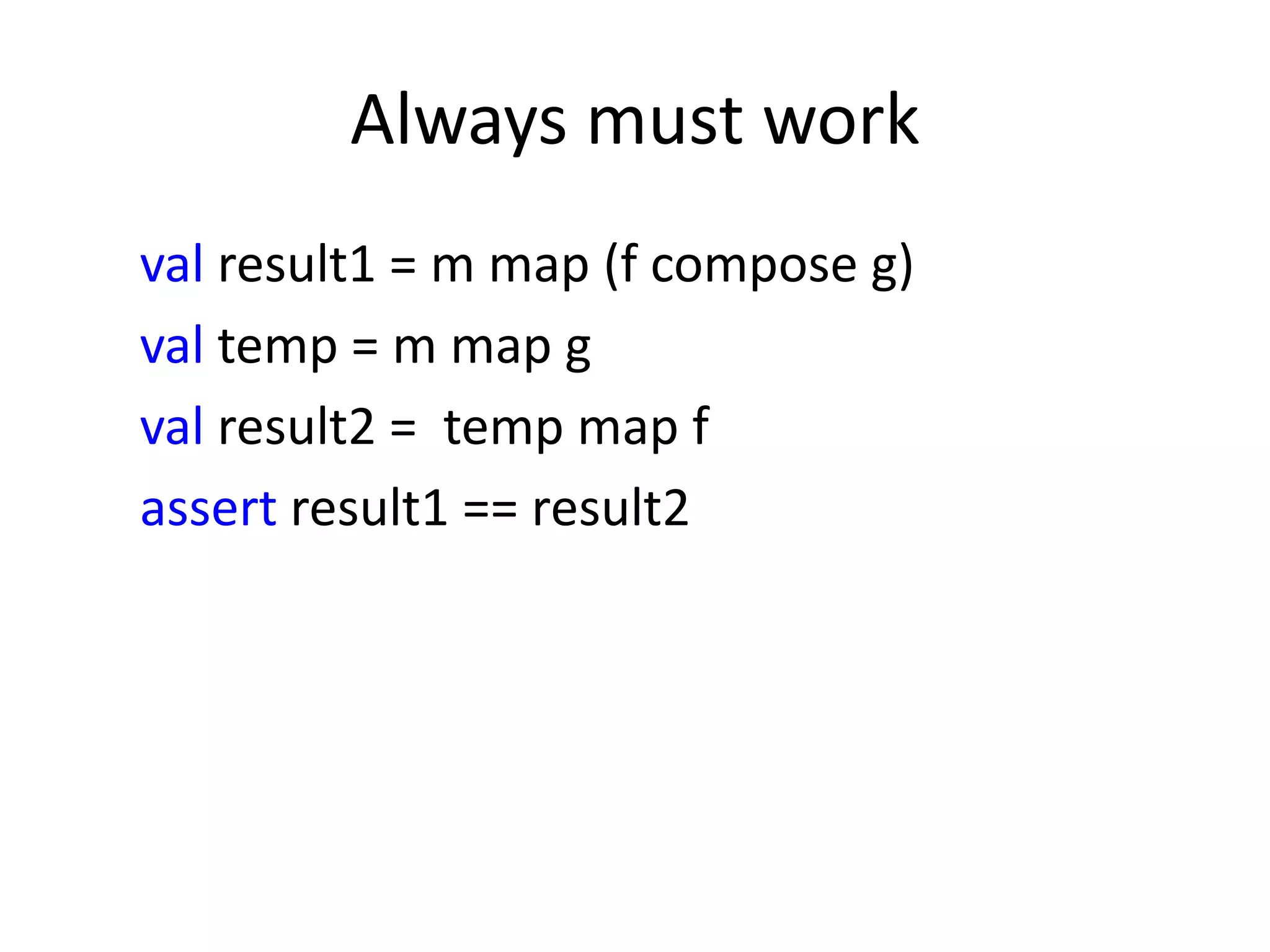
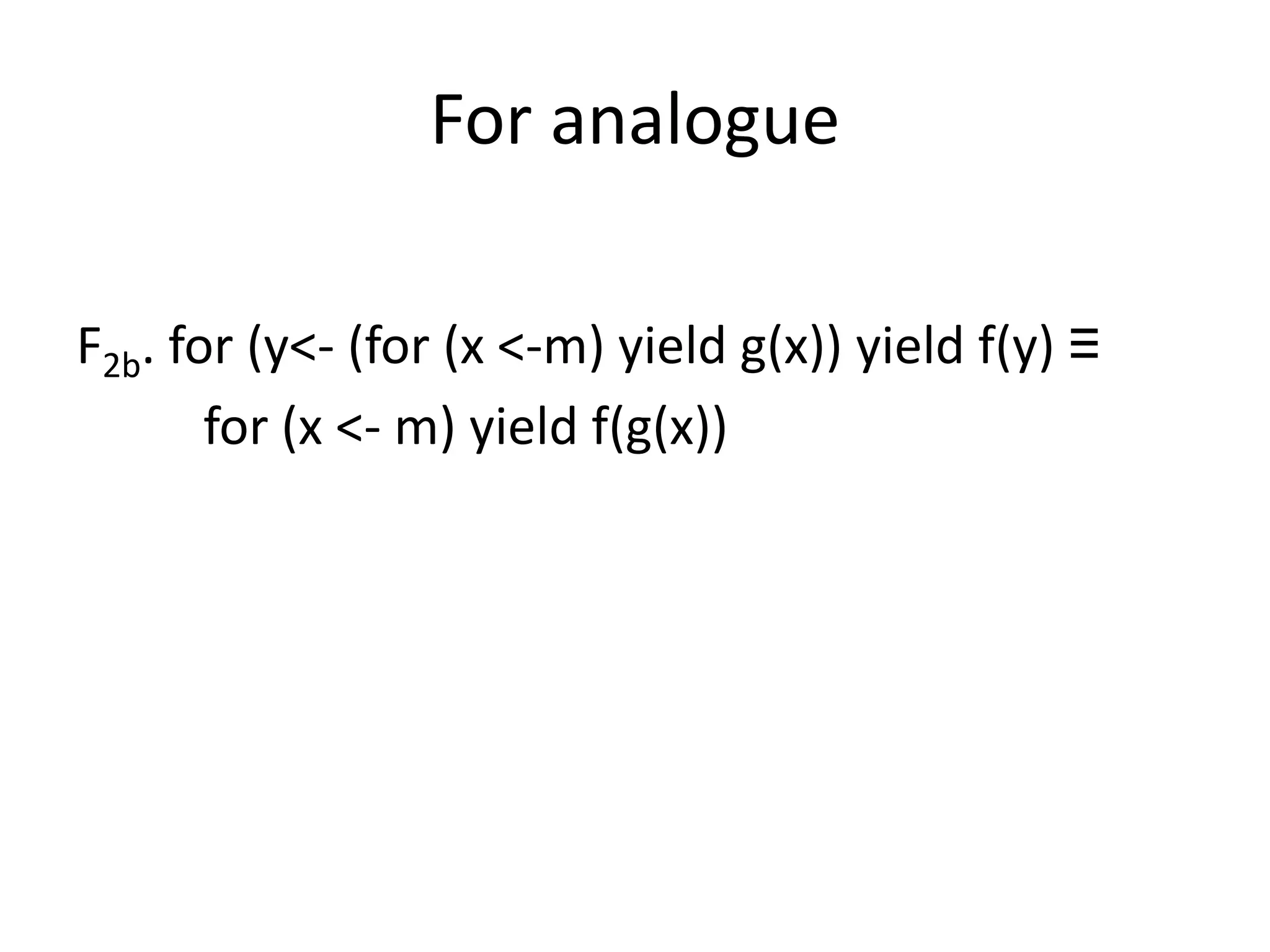
![Functors and Monads
All Monads are Functors
class M[A] {
def map[B](f: A => B):M[B] = ...
def flatMap[B](f: A=> M[B]): M[B] = ...
def unit[A](x:A):M[A] = …
}
Scala way for unit Object apply().](https://image.slidesharecdn.com/scala-monad2-120402070443-phpapp02/75/Introduction-to-Monads-in-Scala-2-32-2048.jpg)
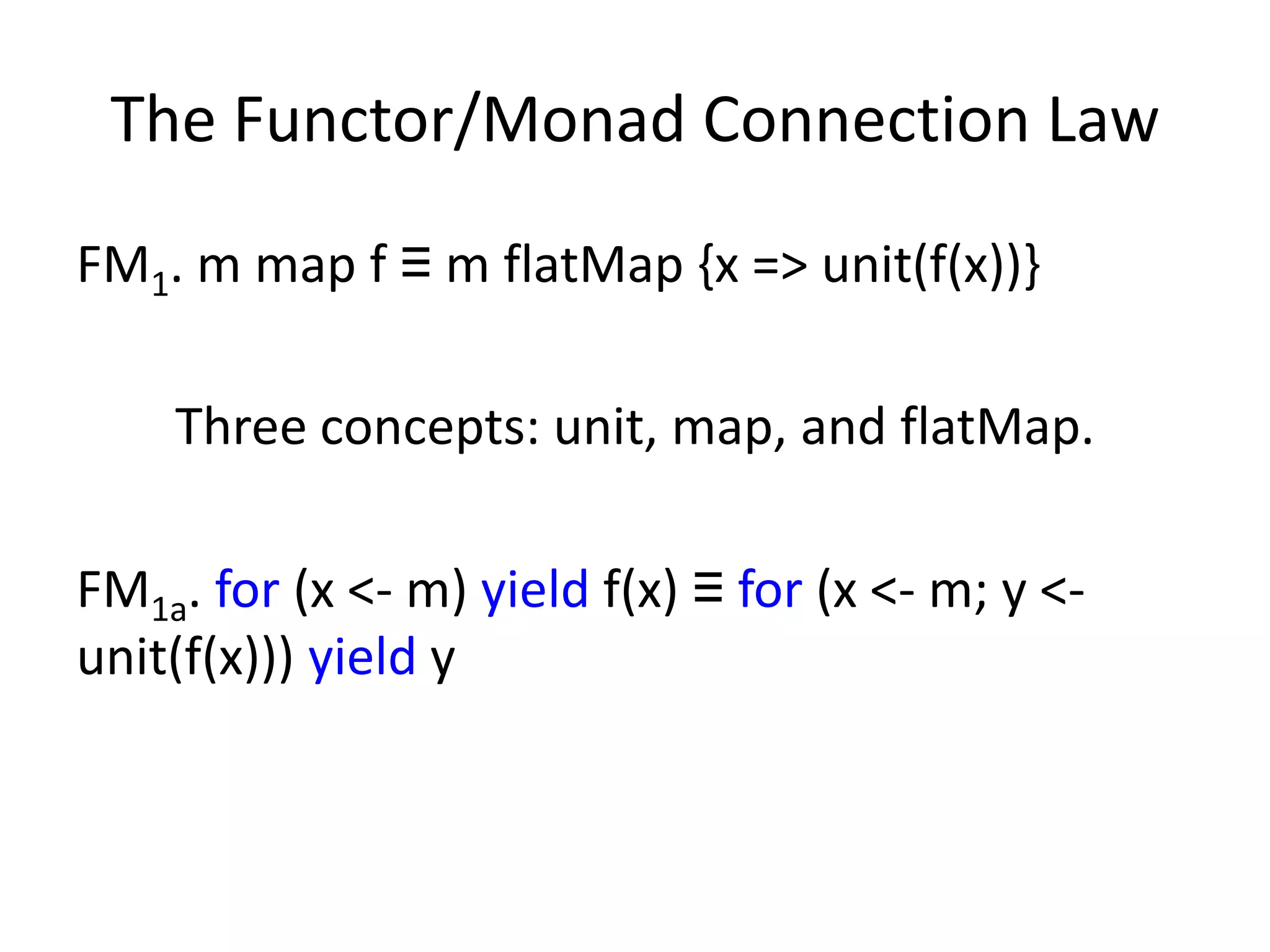
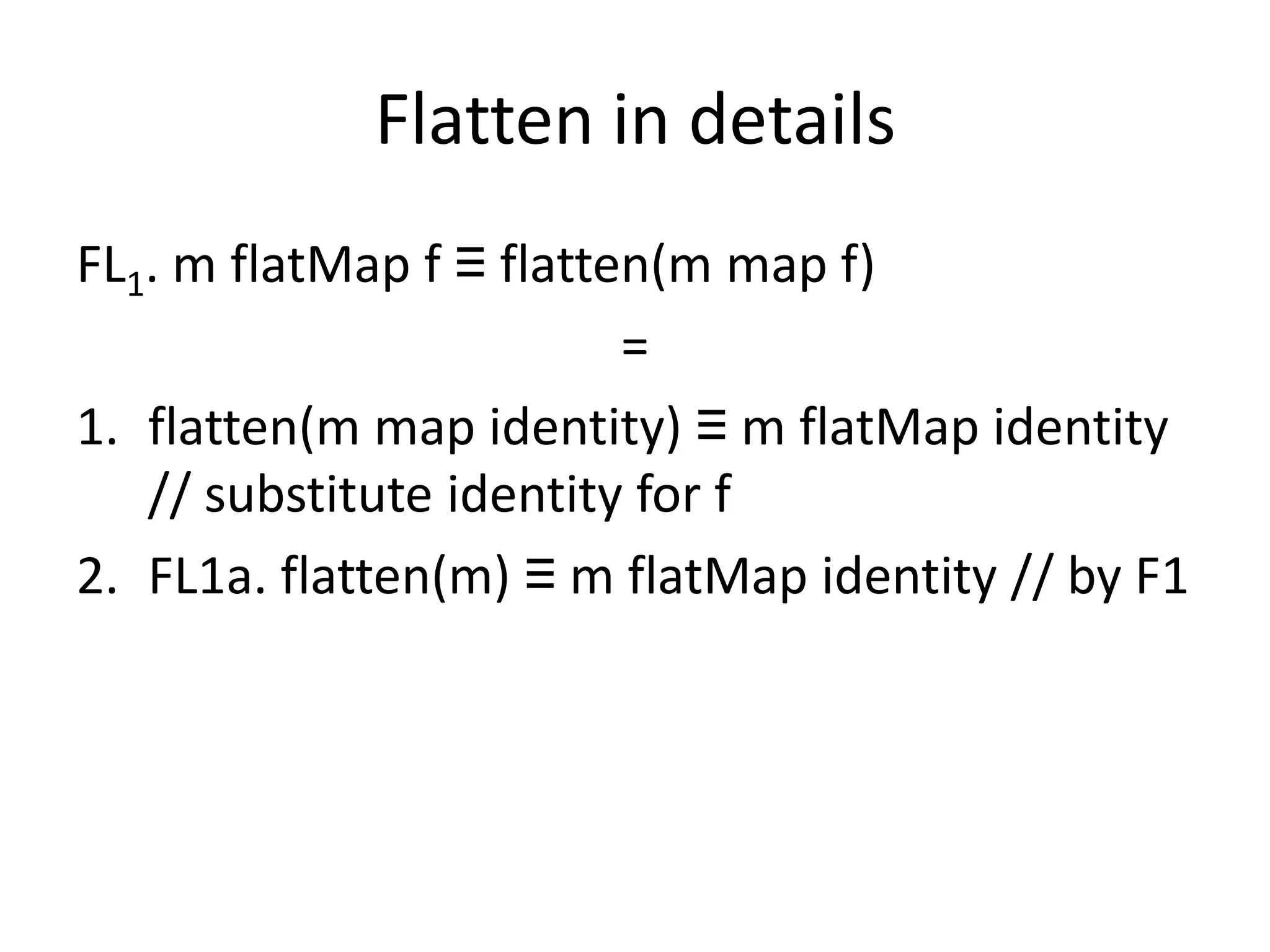
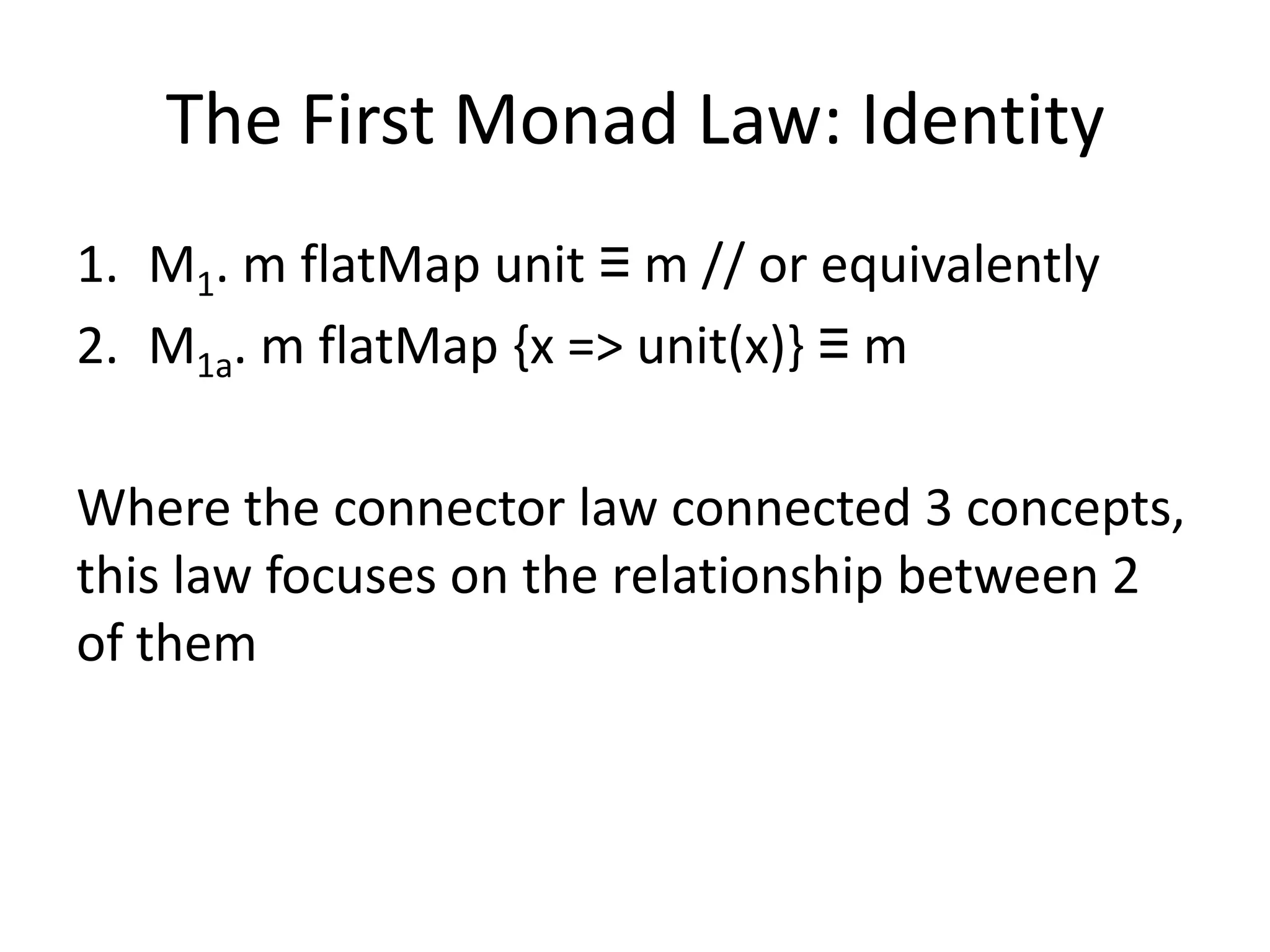
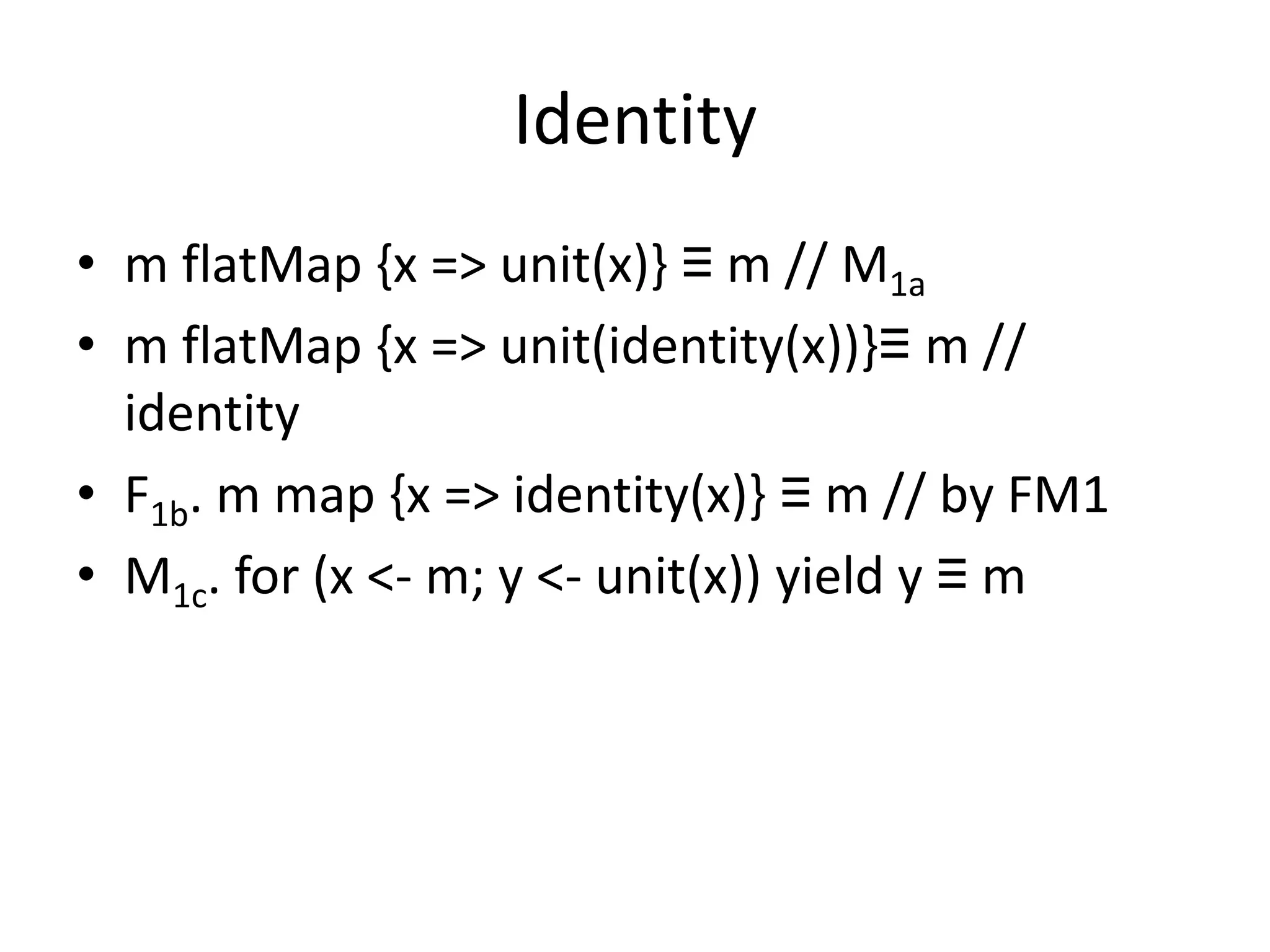
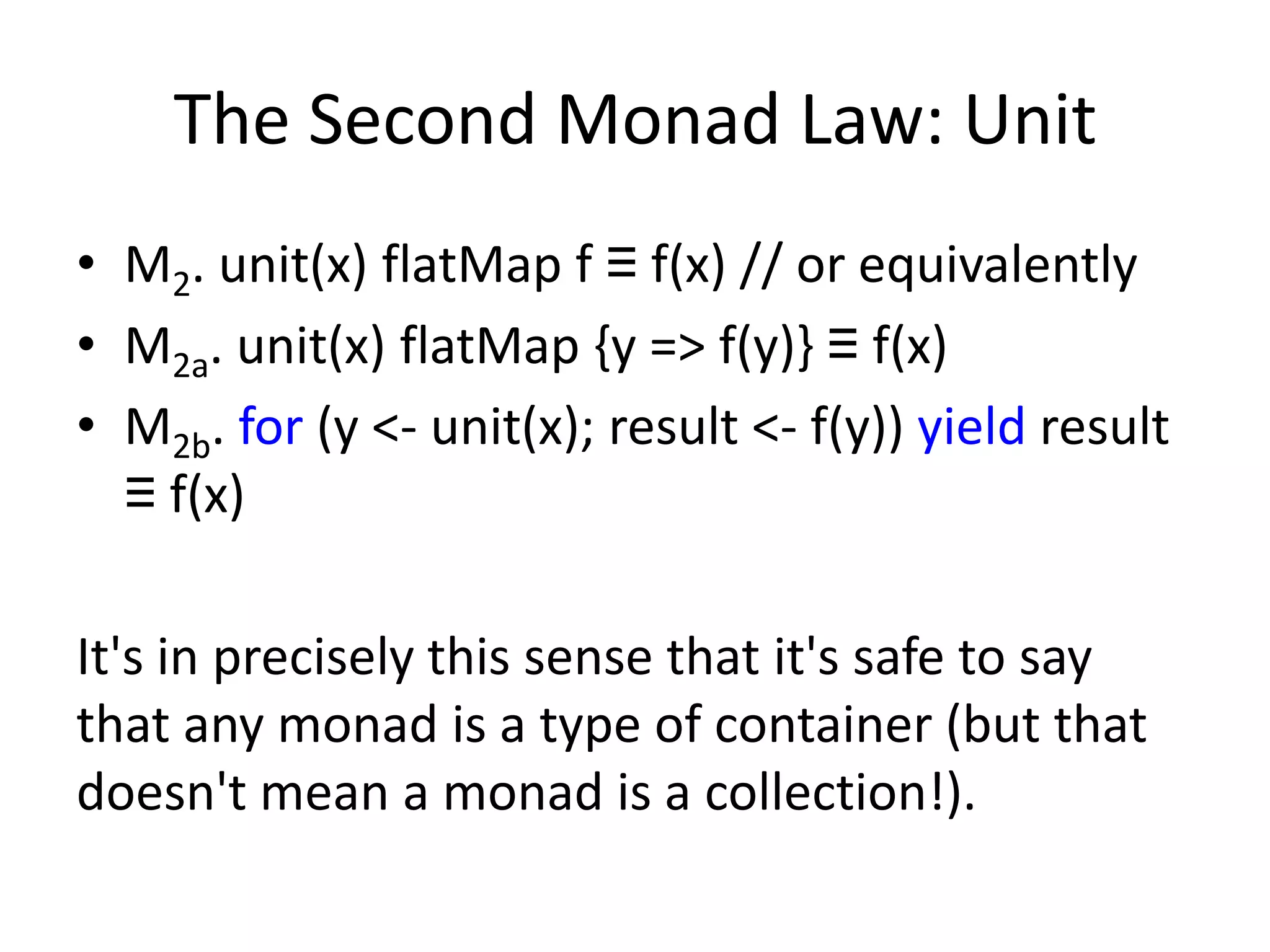
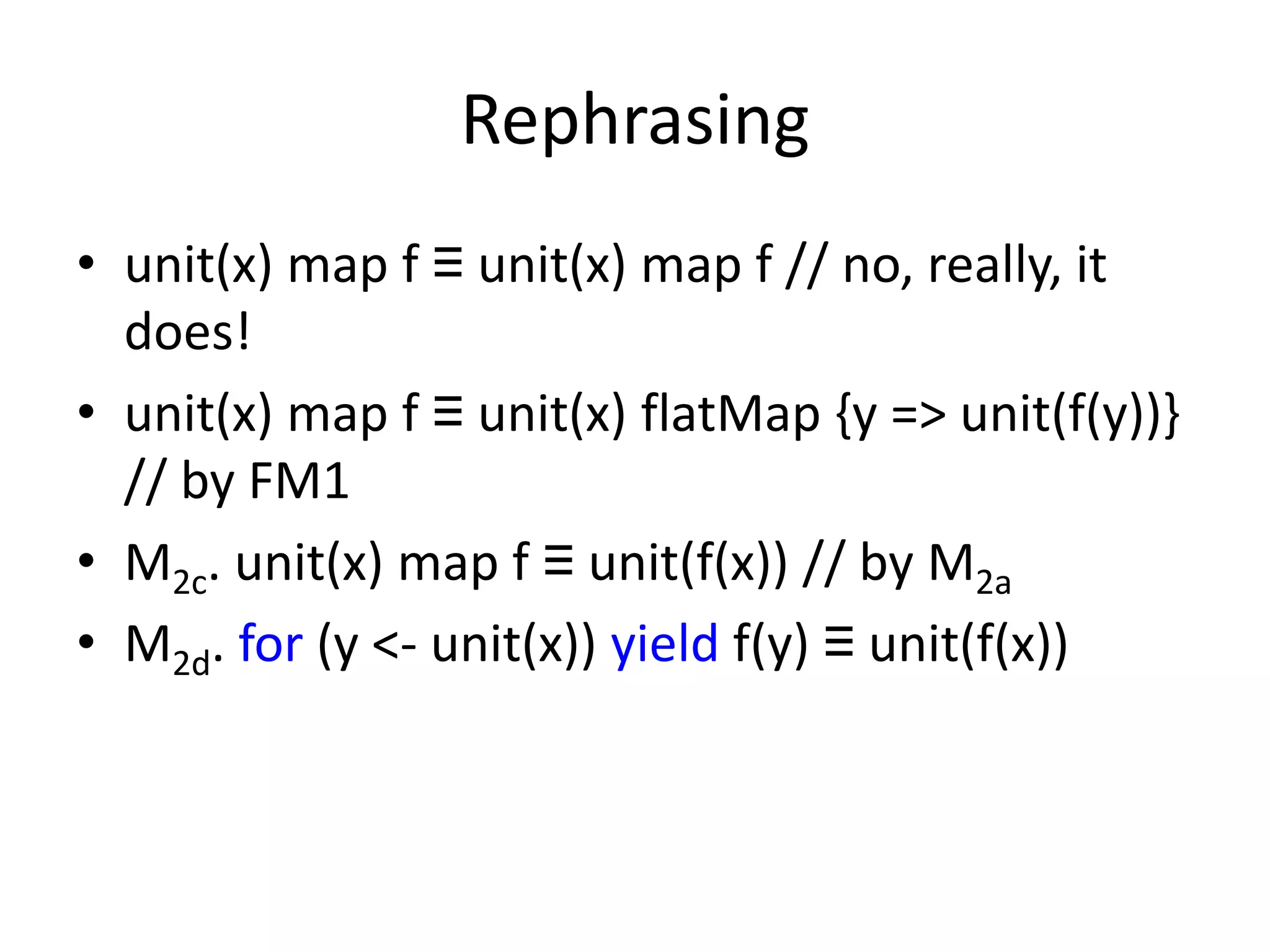
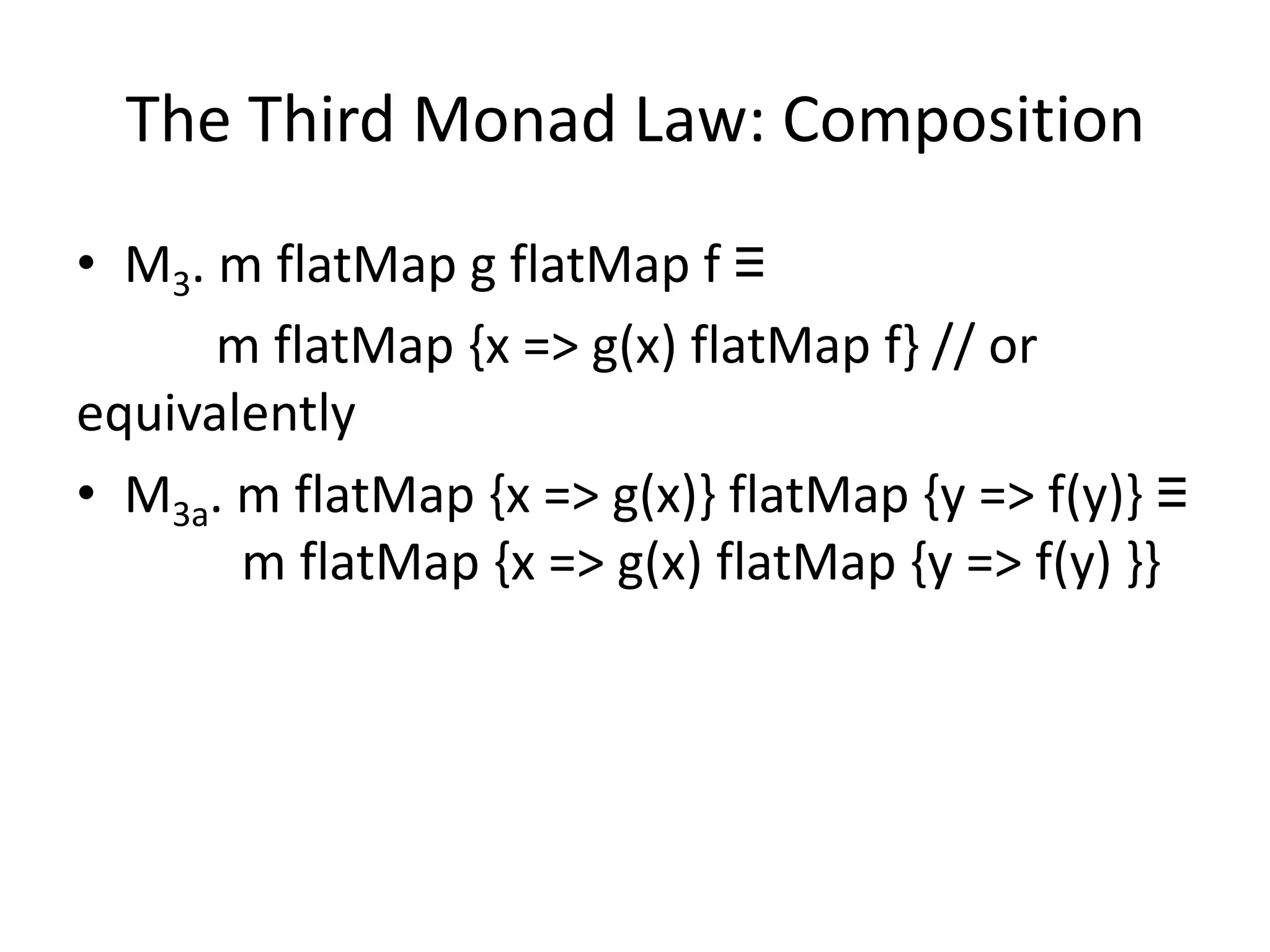
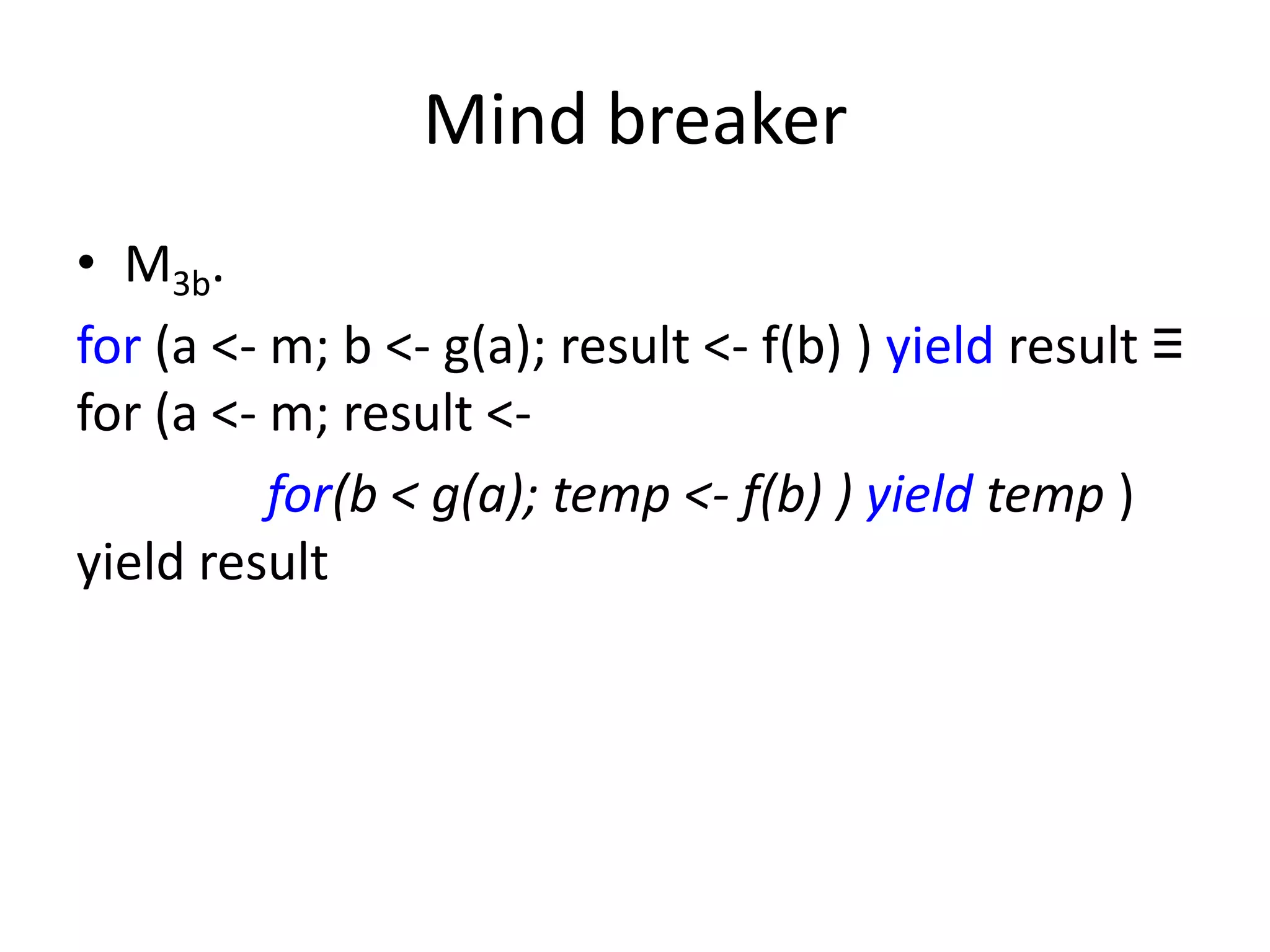
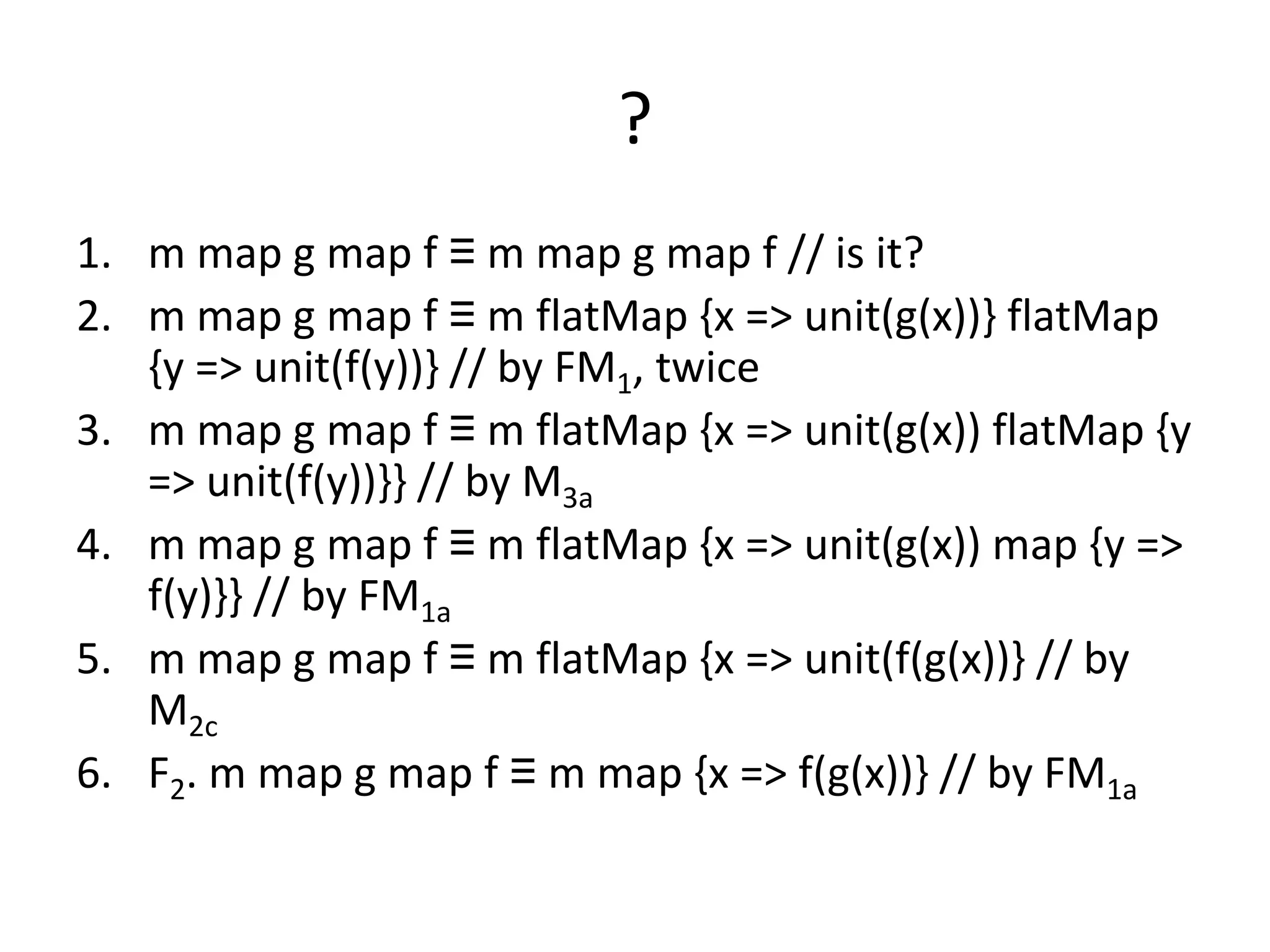
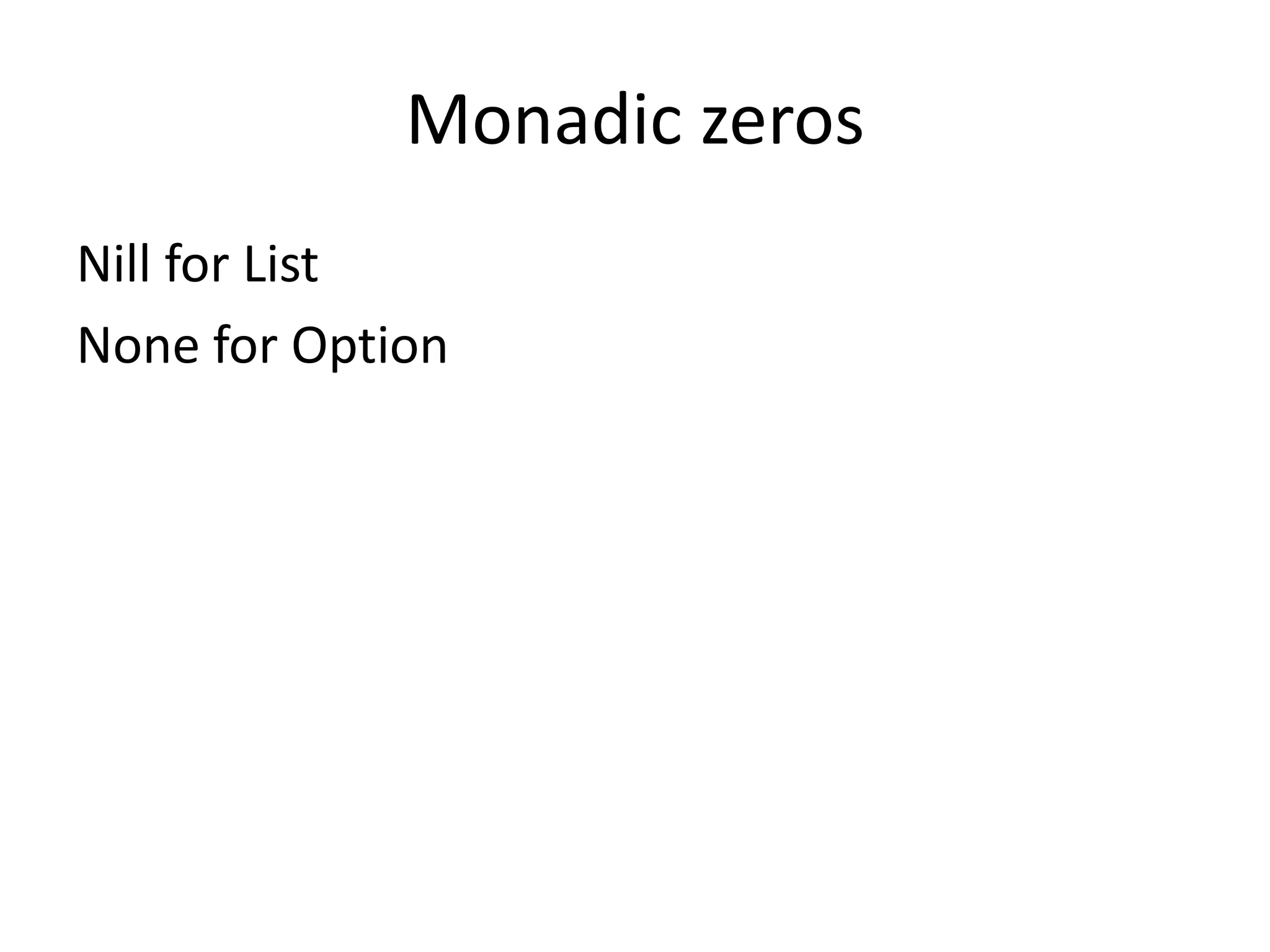
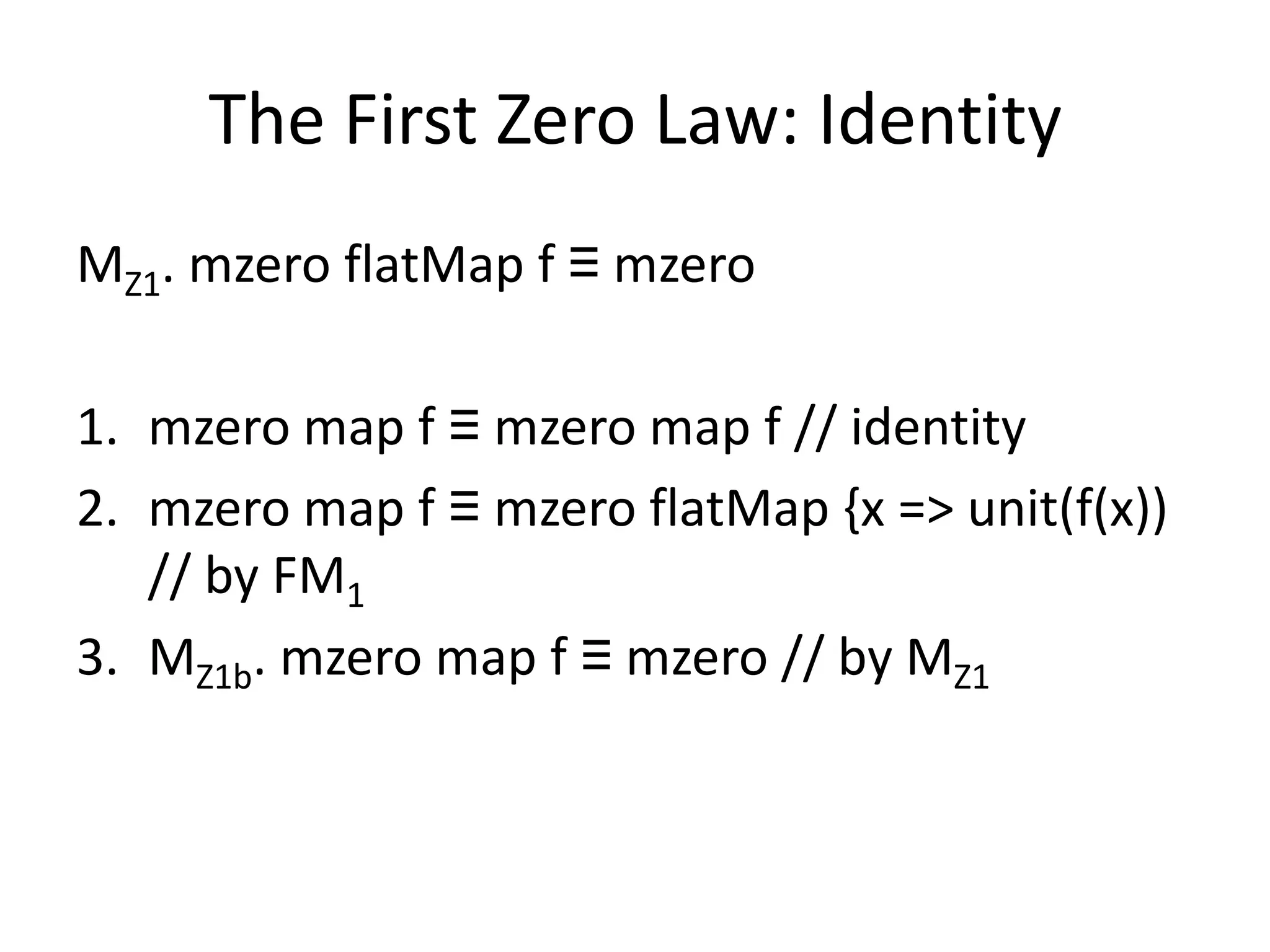
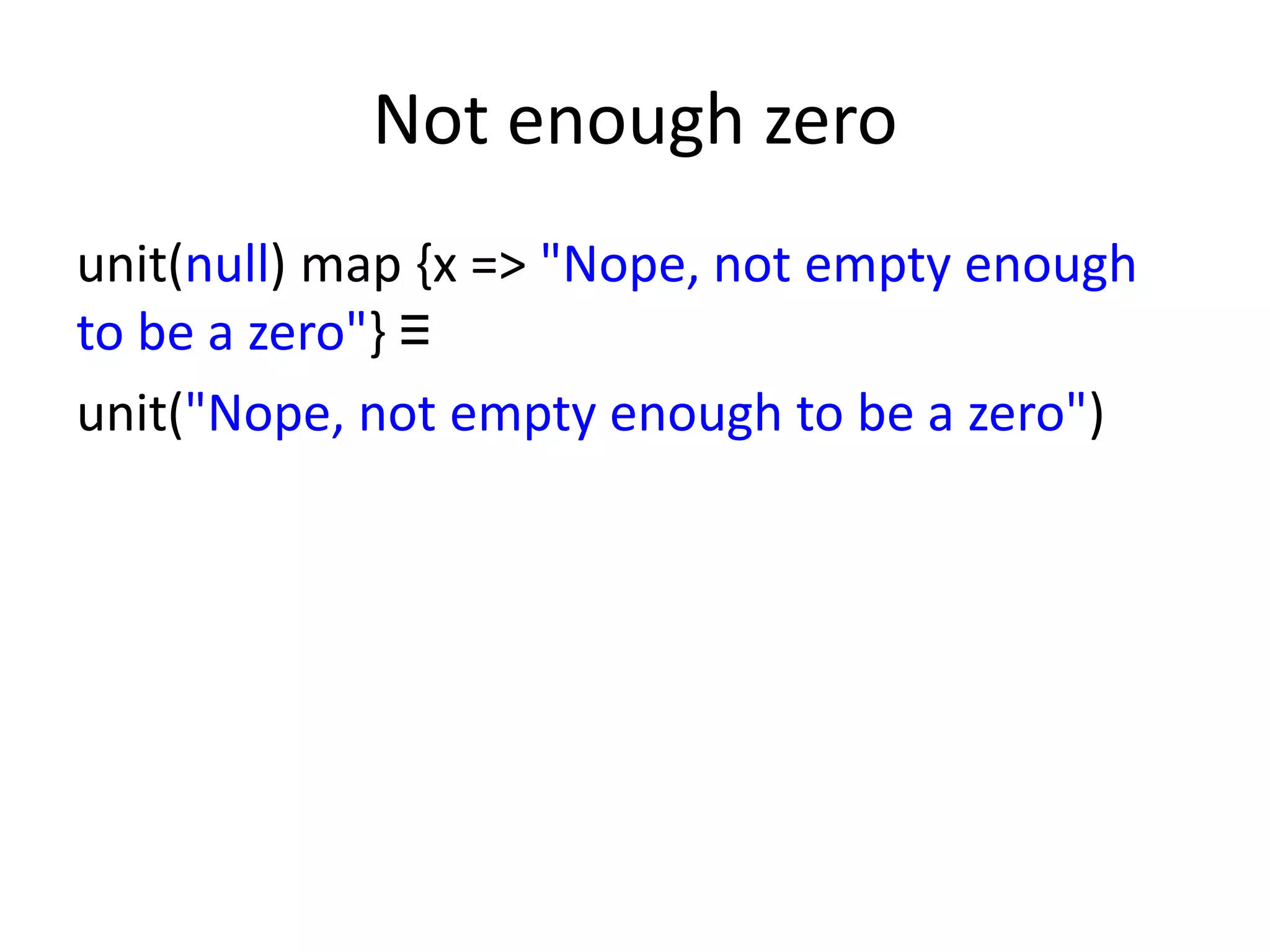
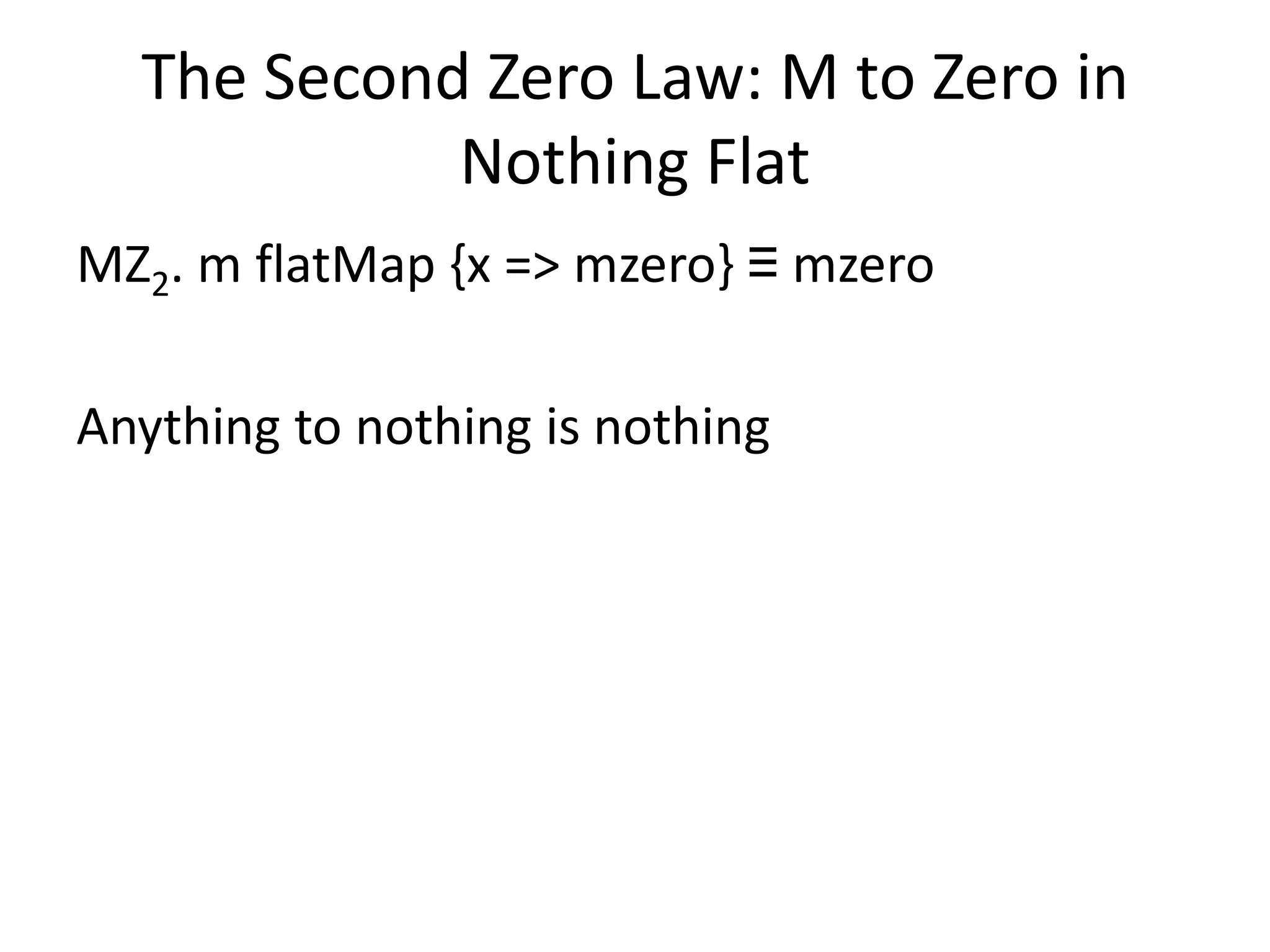
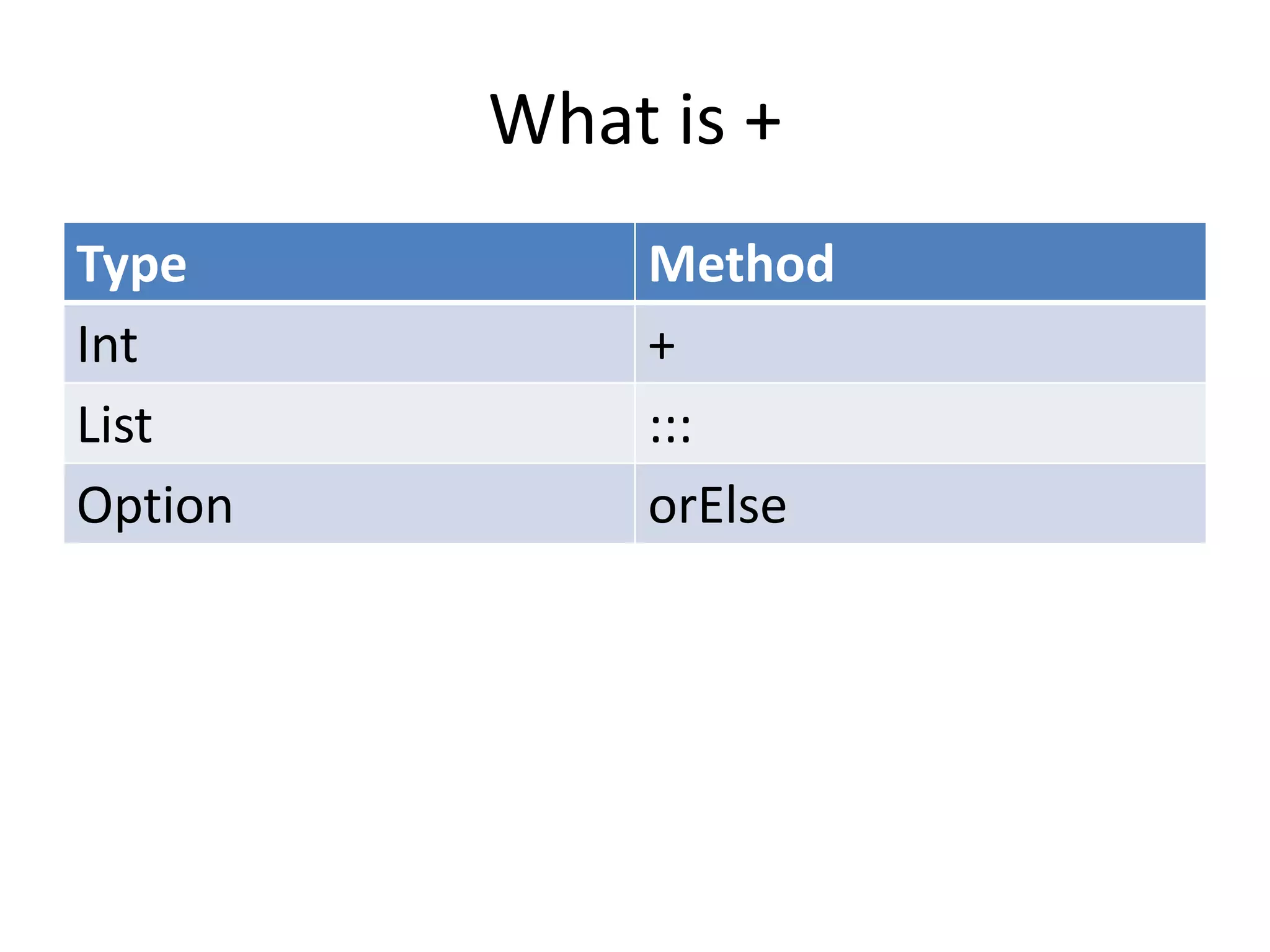
![The Third and Fourth Zero Laws: Plus
class M[A] {
...
def plus(other:M[B >: A]): M[B] = ...
}
• MZ3. mzero plus m ≡ m
• MZ4. m plus mzero ≡ m](https://image.slidesharecdn.com/scala-monad2-120402070443-phpapp02/75/Introduction-to-Monads-in-Scala-2-47-2048.jpg)
![Filtering Again
class M[A] {
def map[B](f: A => B):M[B] = ...
def flatMap[B](f: A=> M[B]): M[B] = ...
def filter(p: A=> Boolean): M[A] = ...
}](https://image.slidesharecdn.com/scala-monad2-120402070443-phpapp02/75/Introduction-to-Monads-in-Scala-2-48-2048.jpg)
